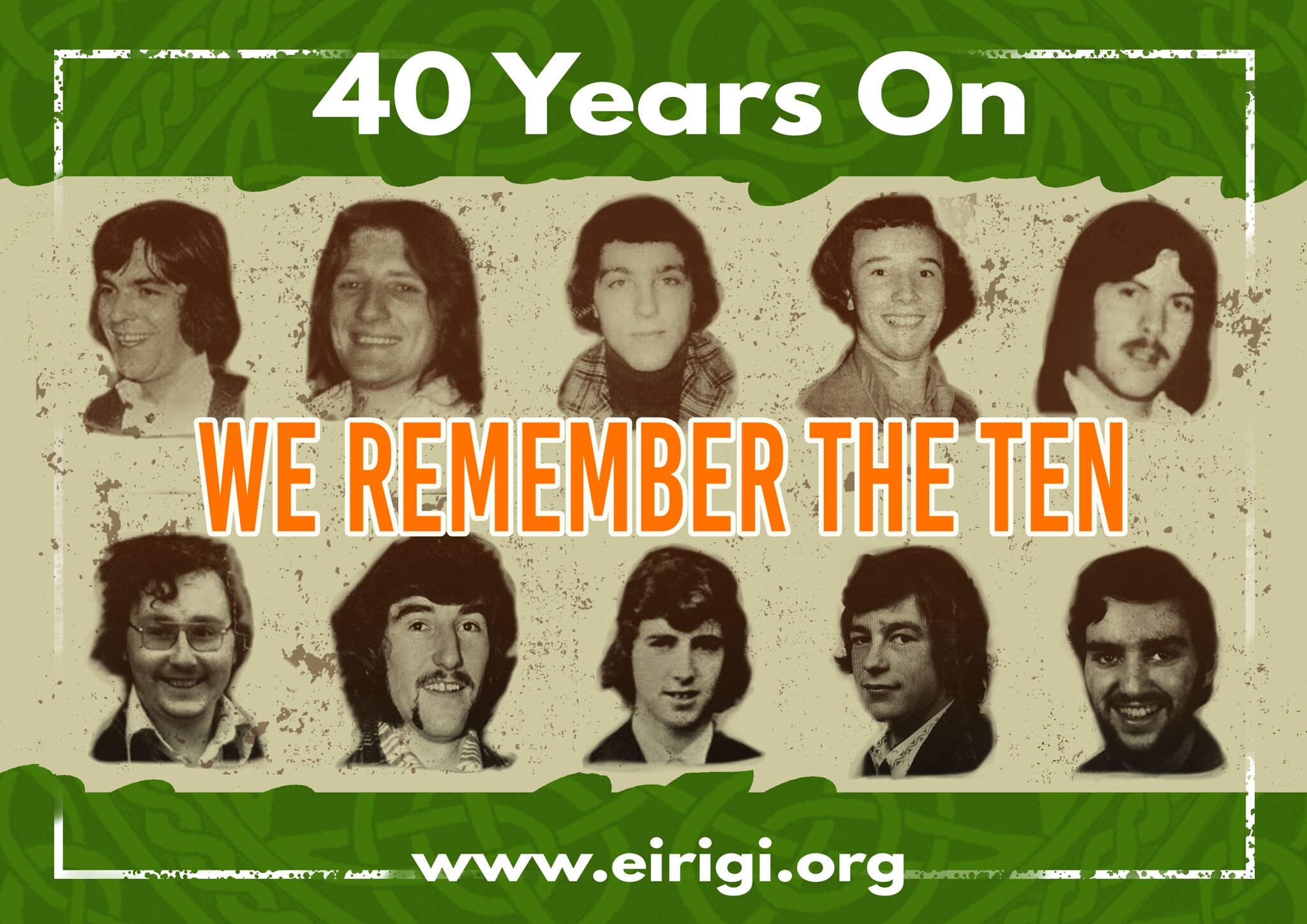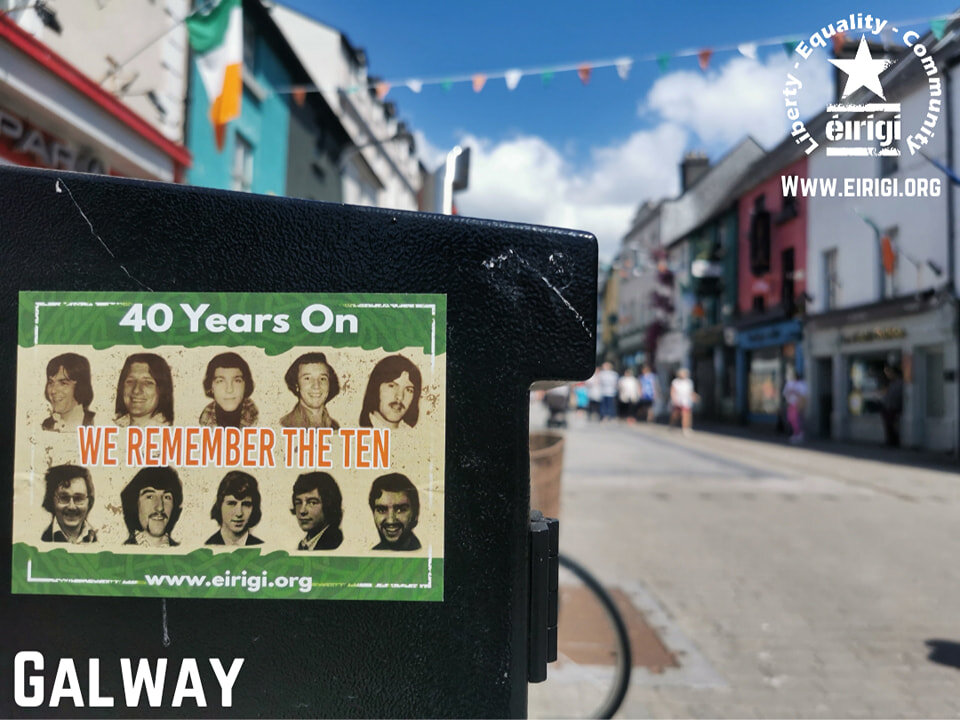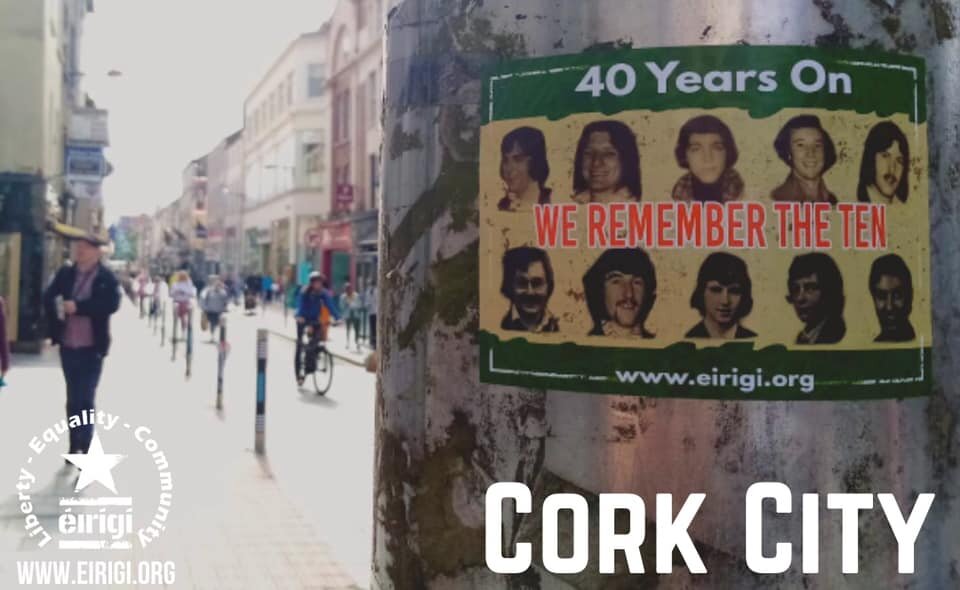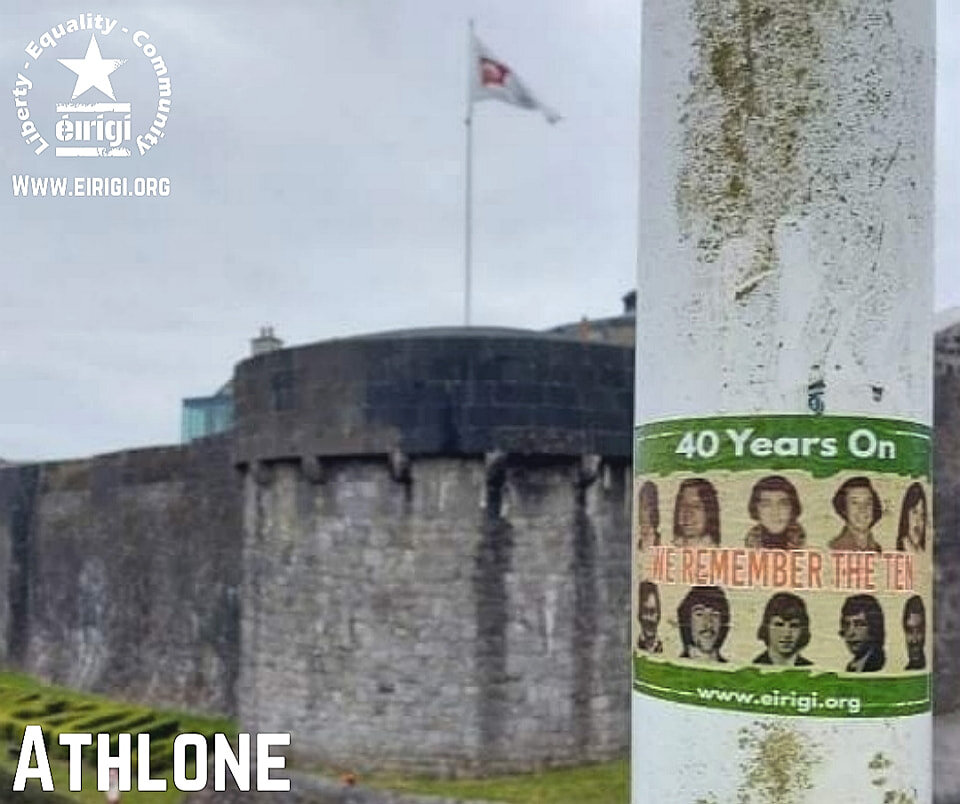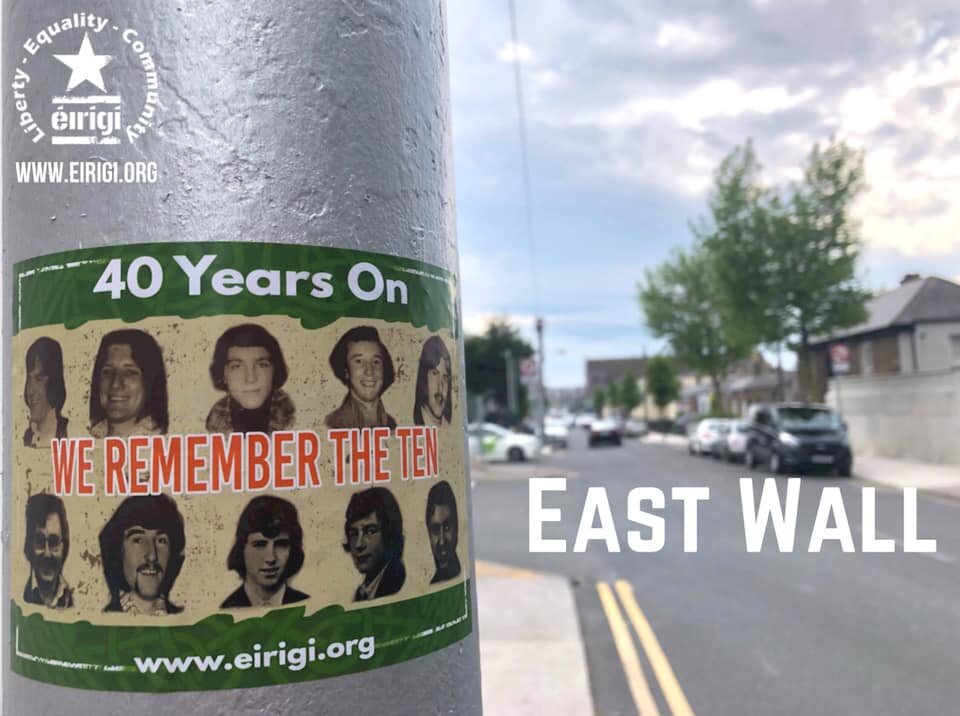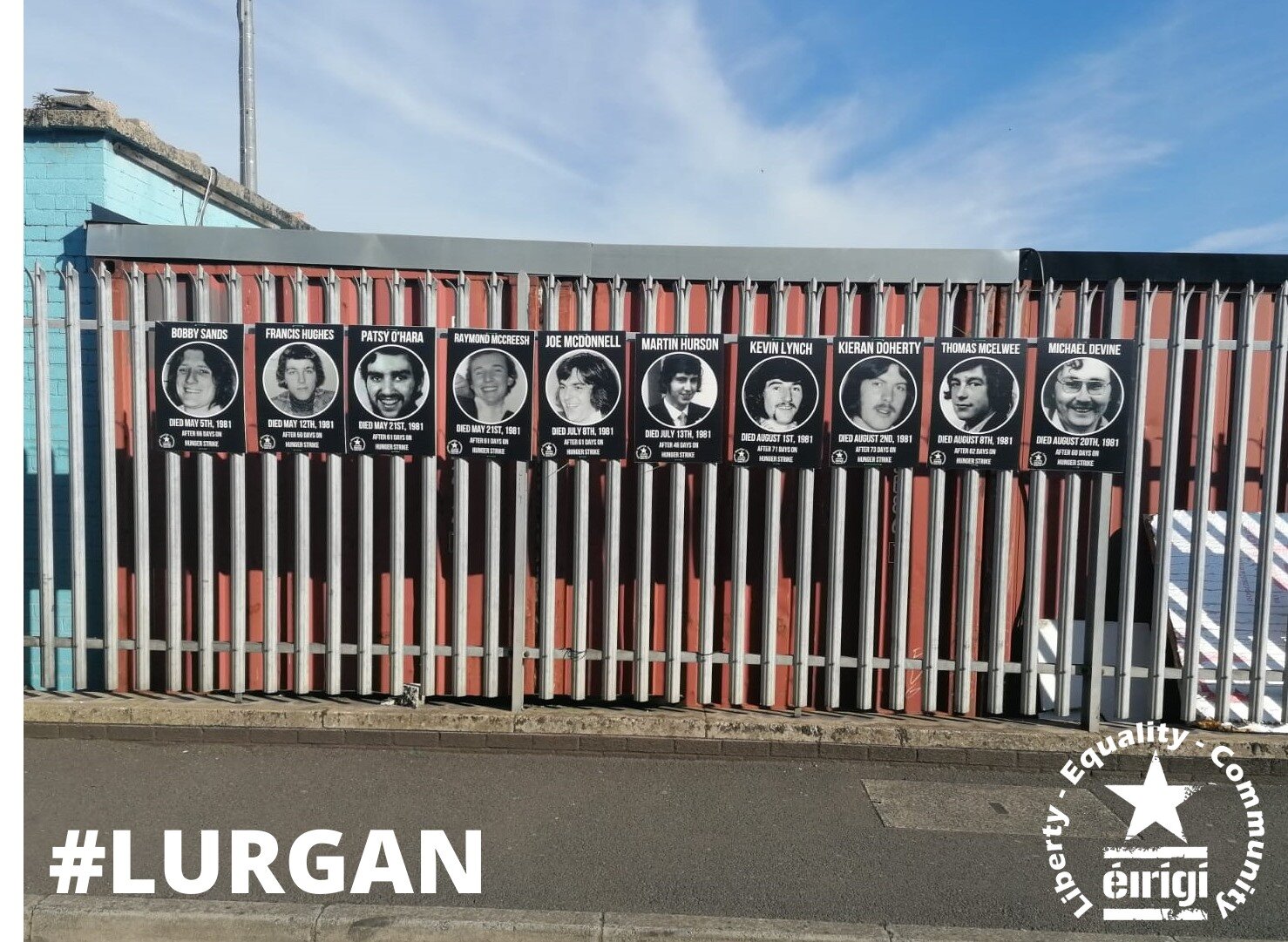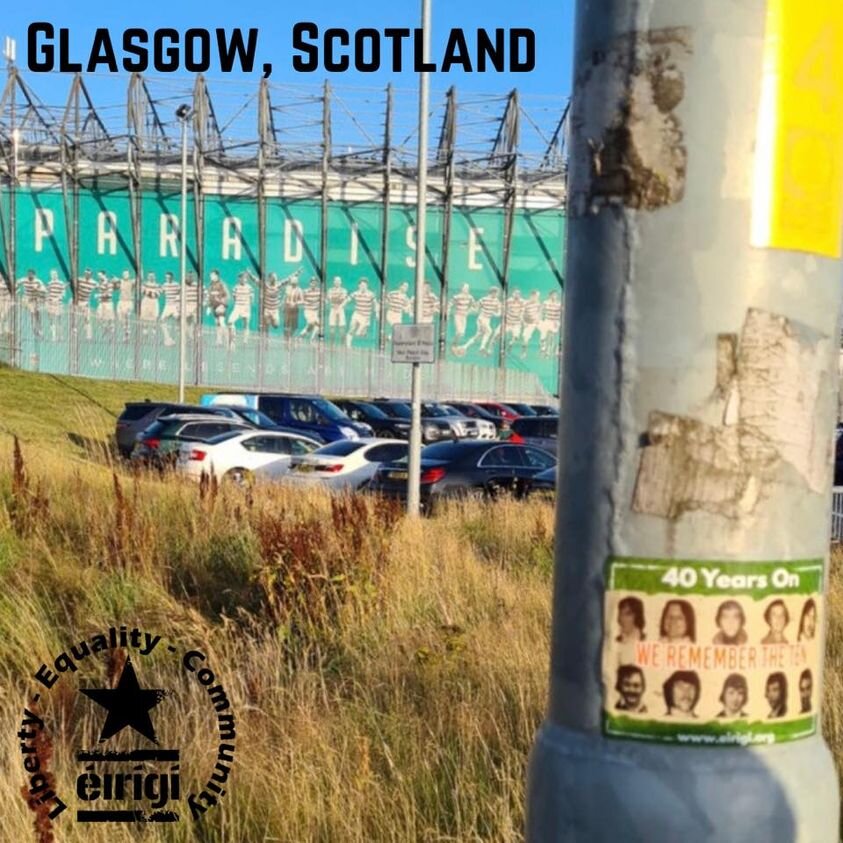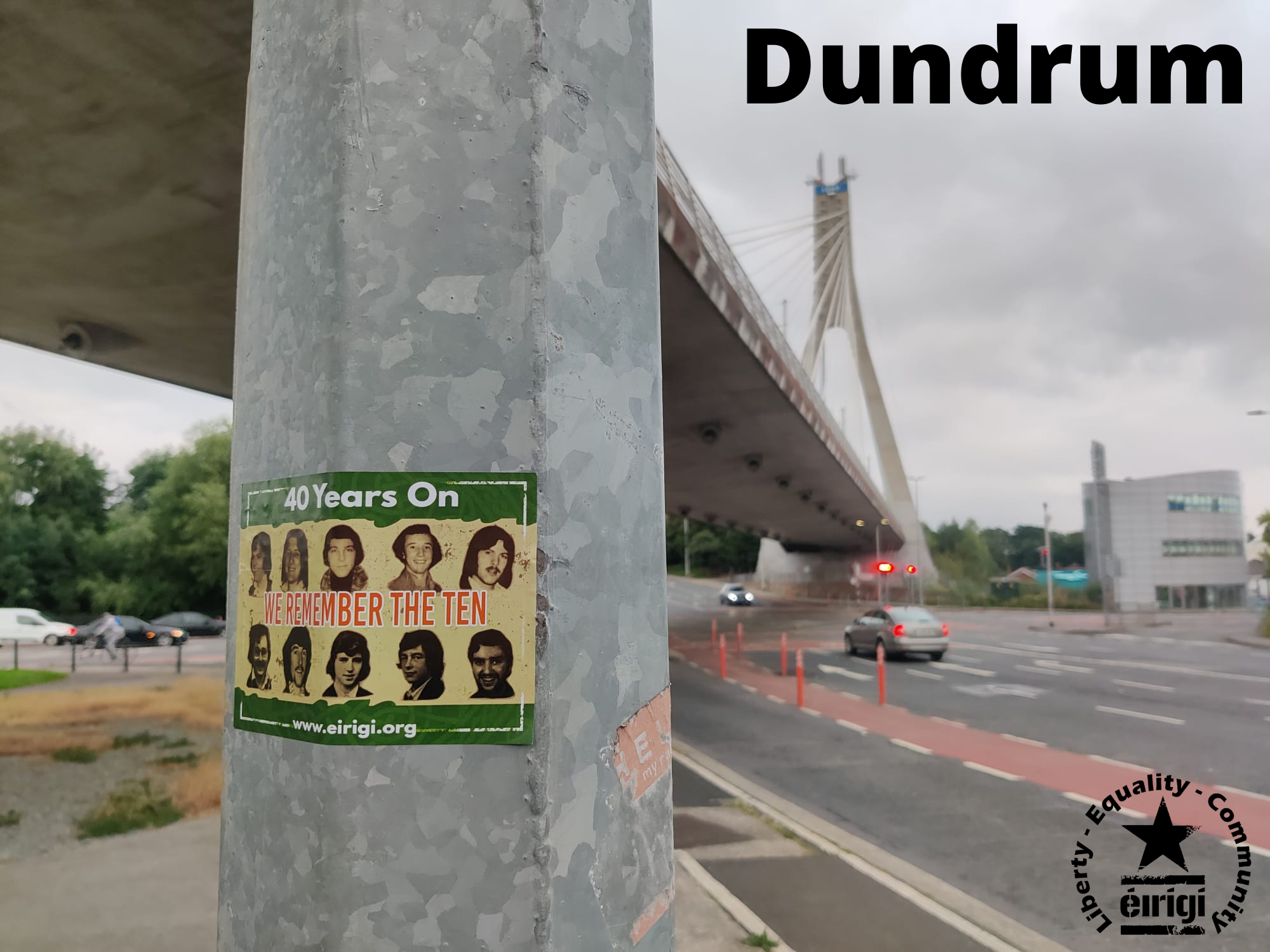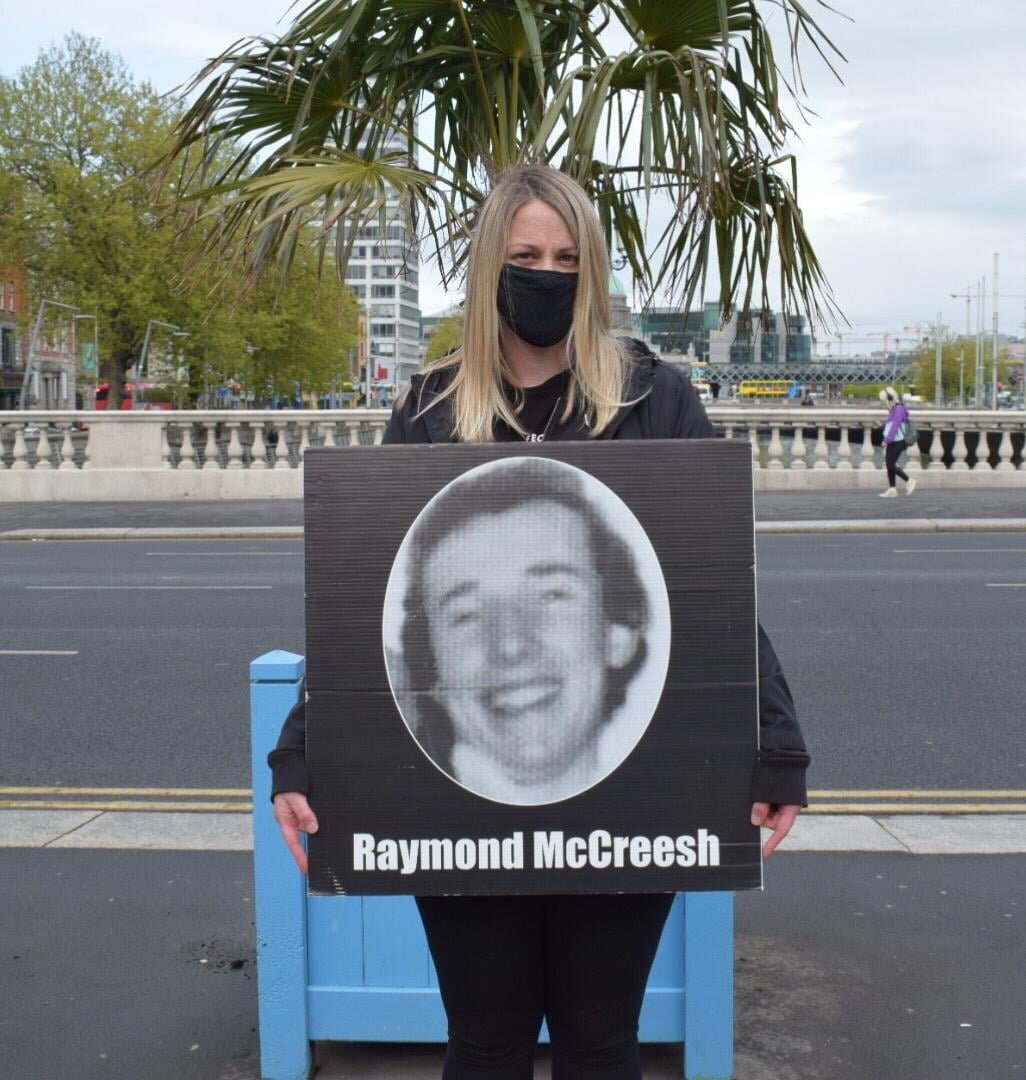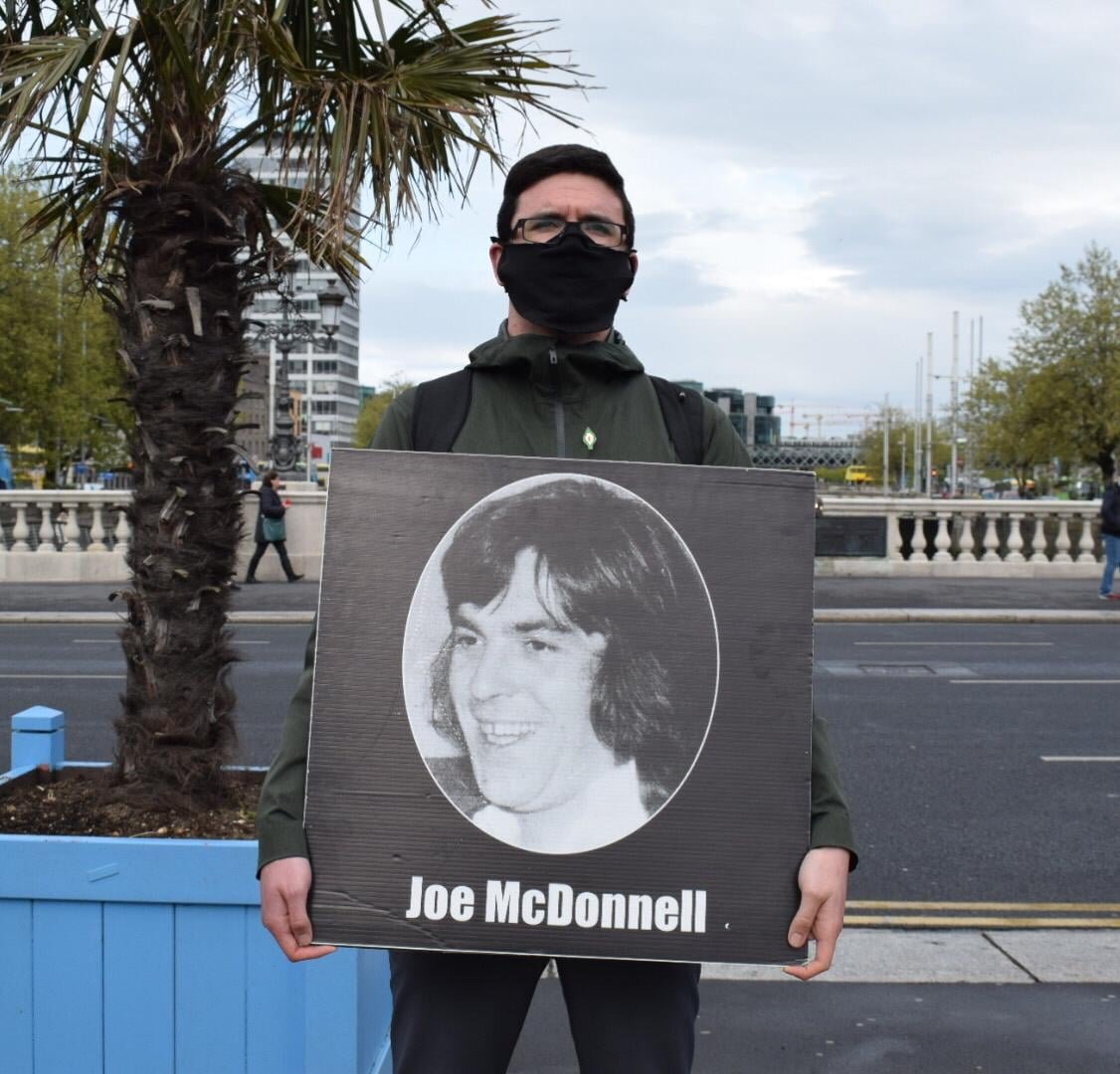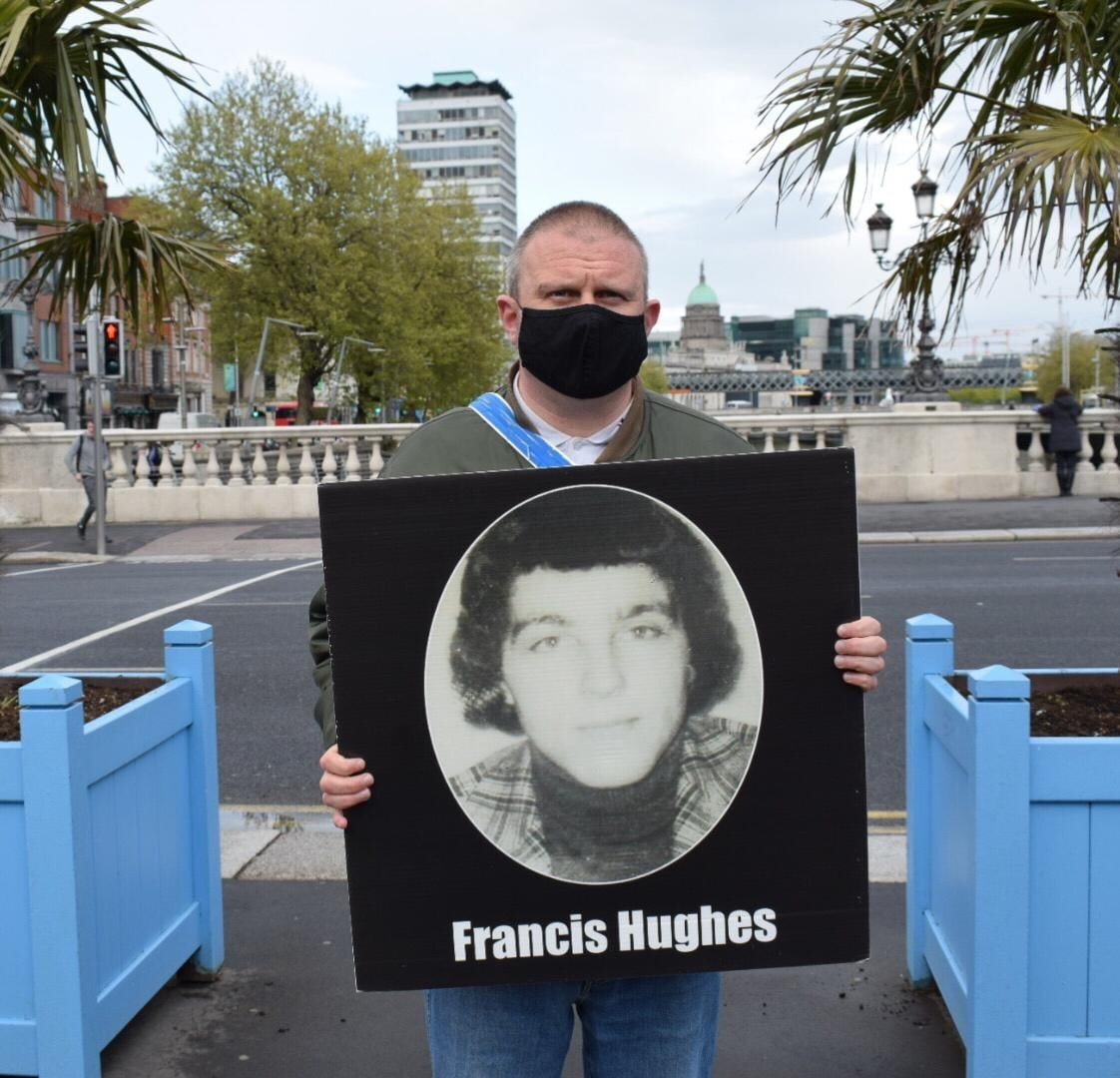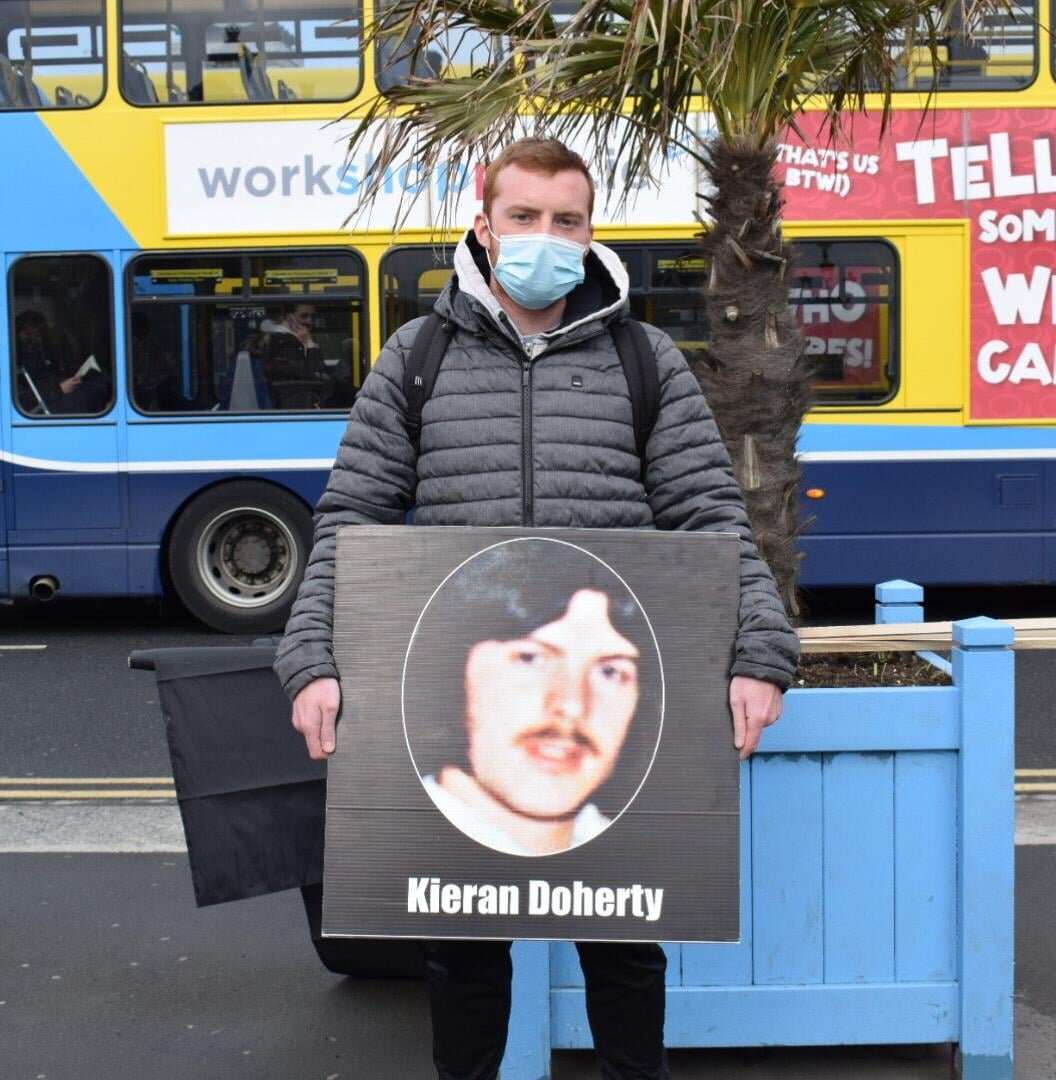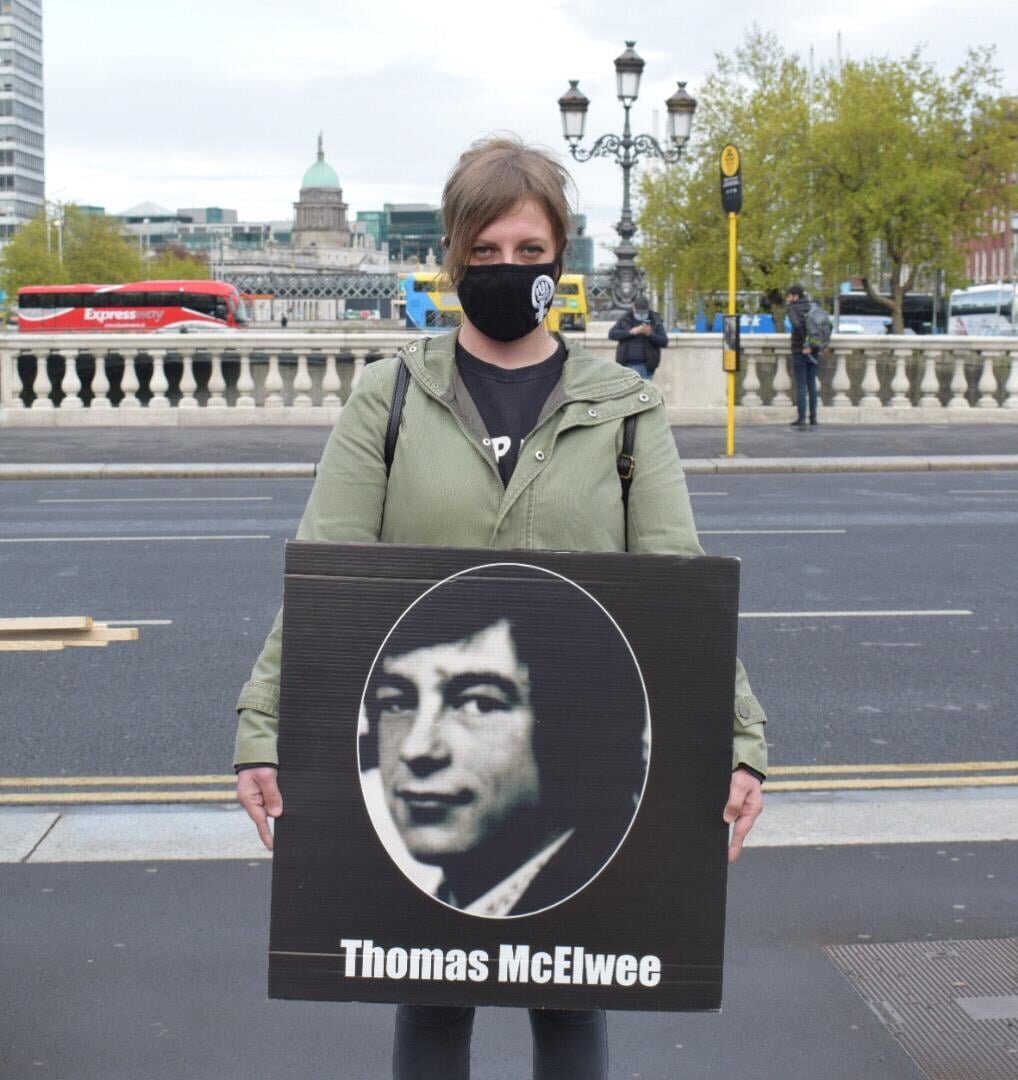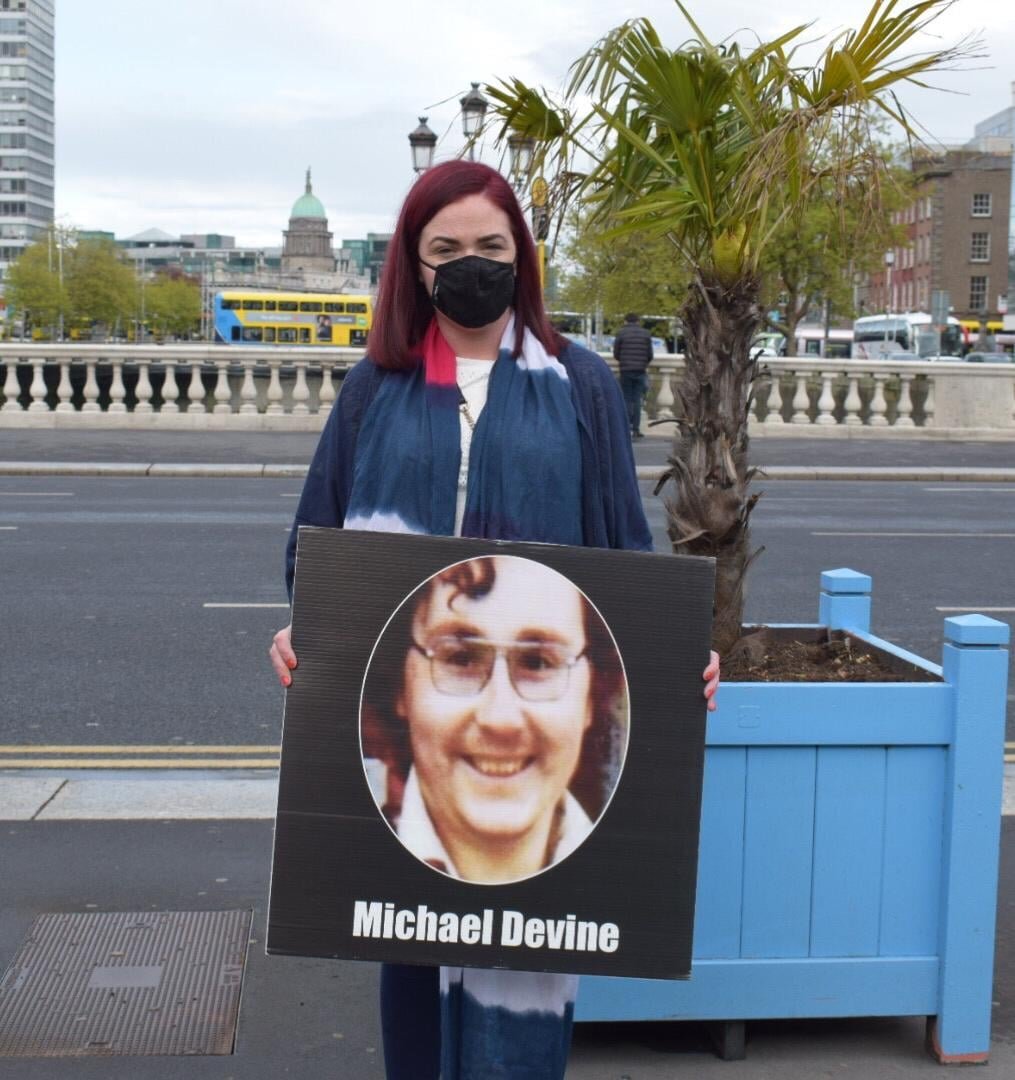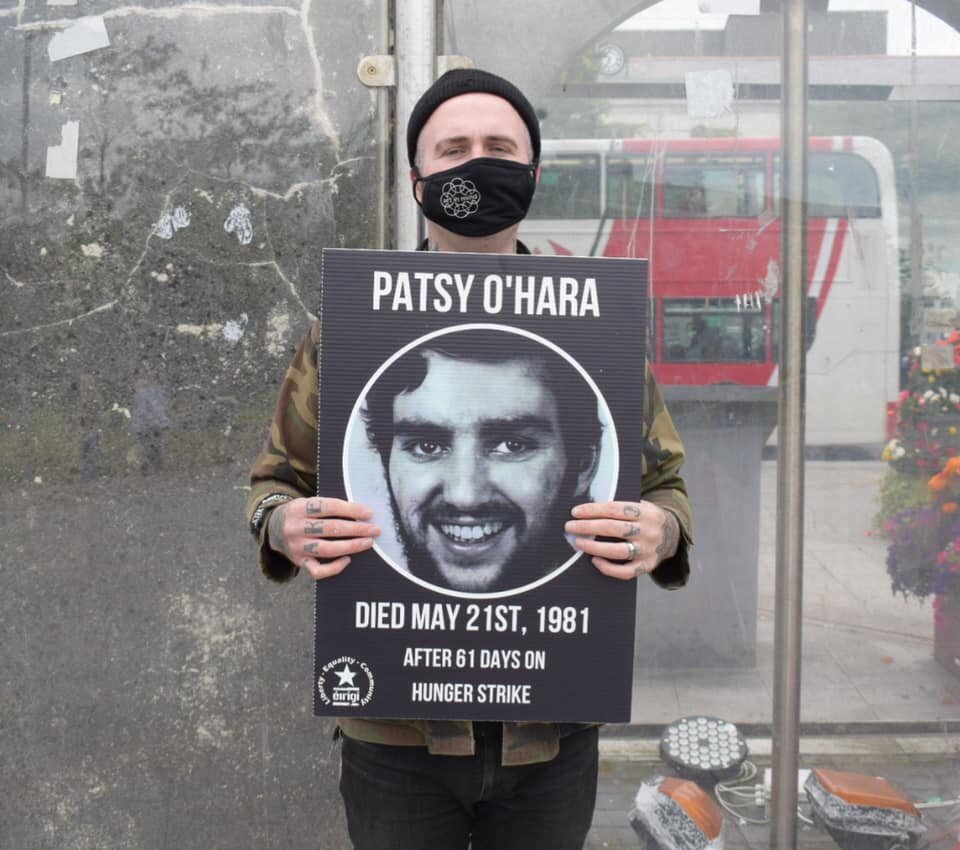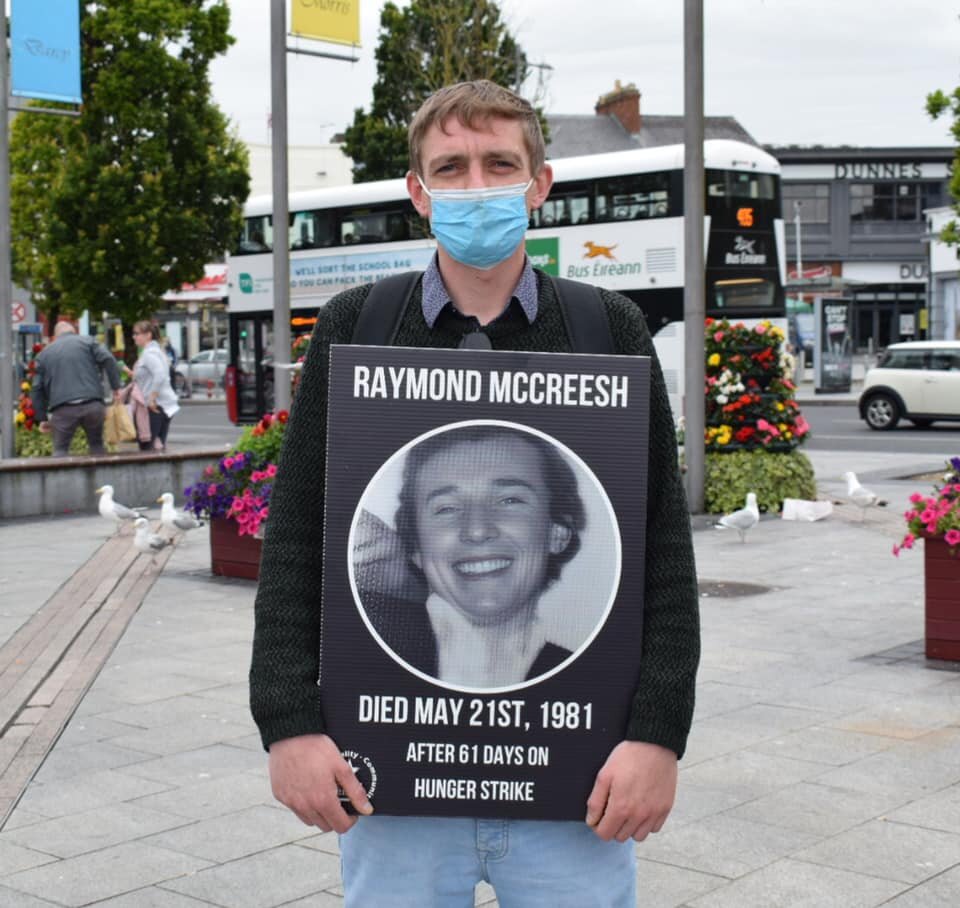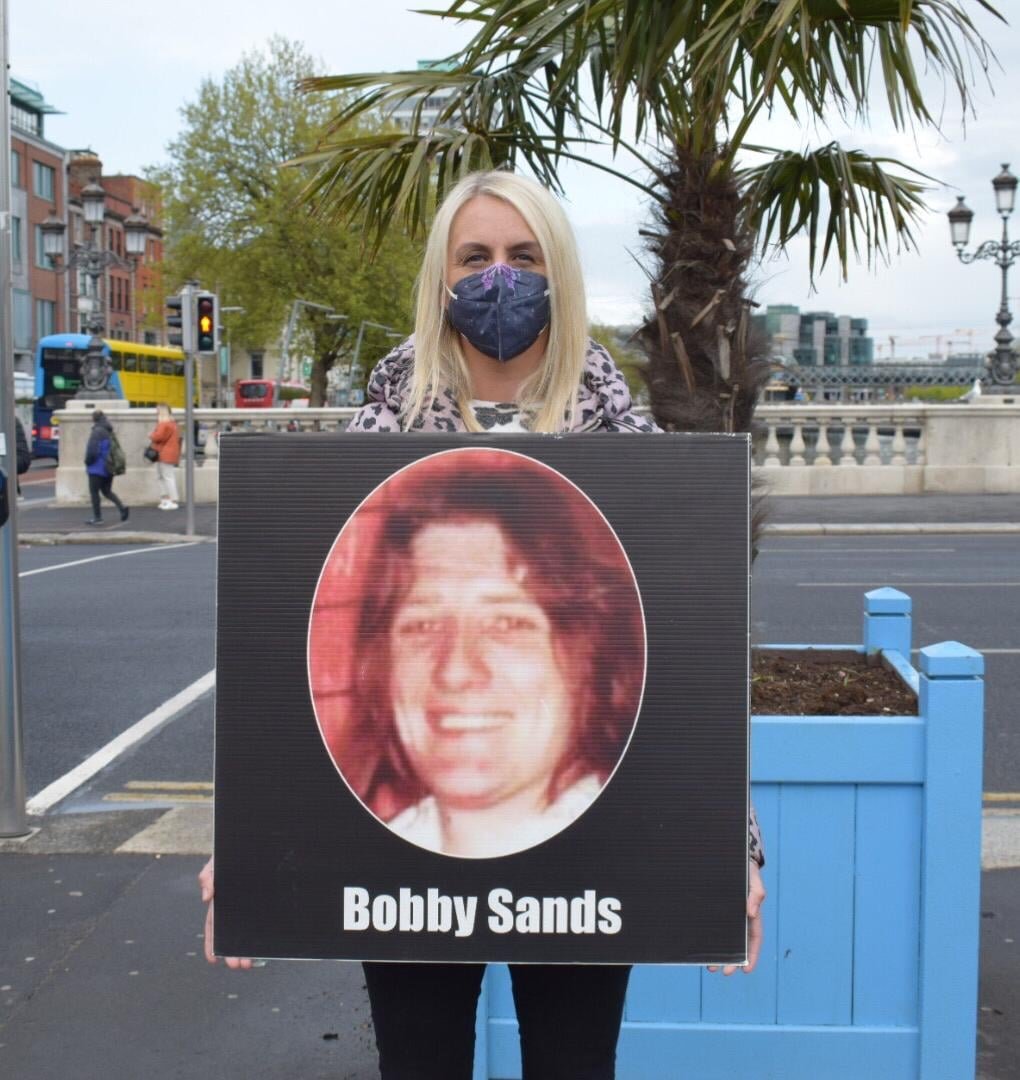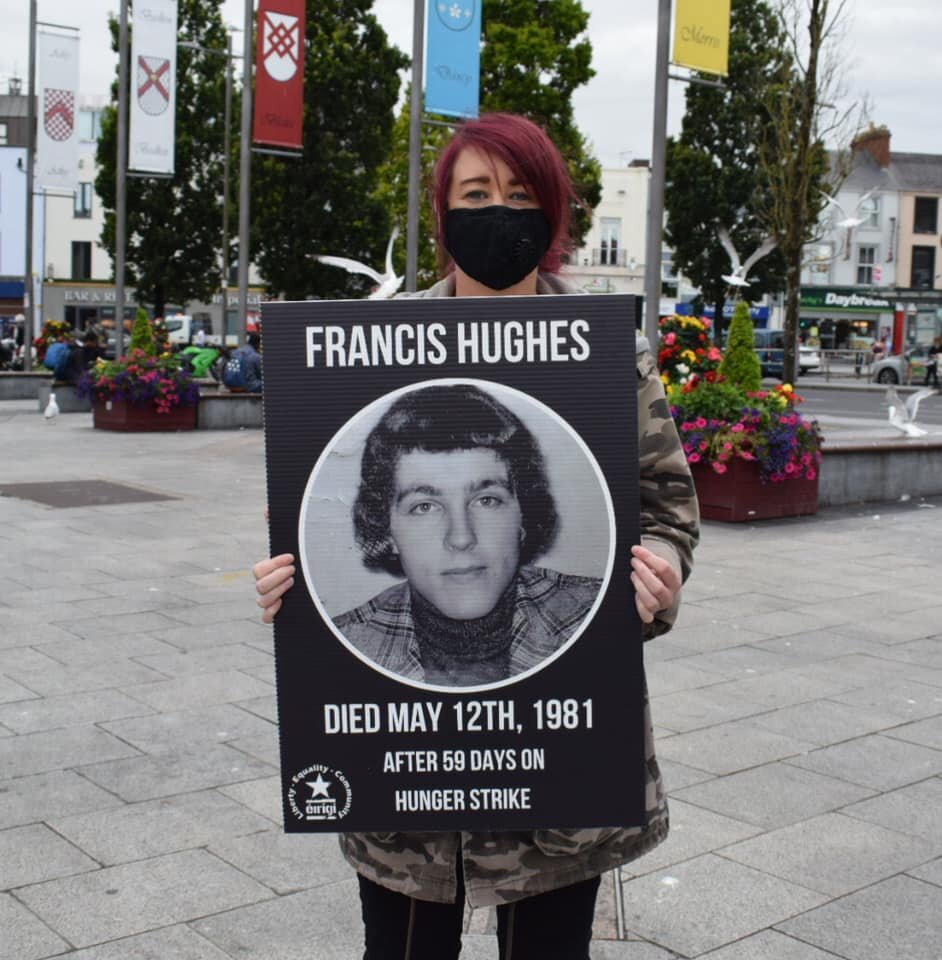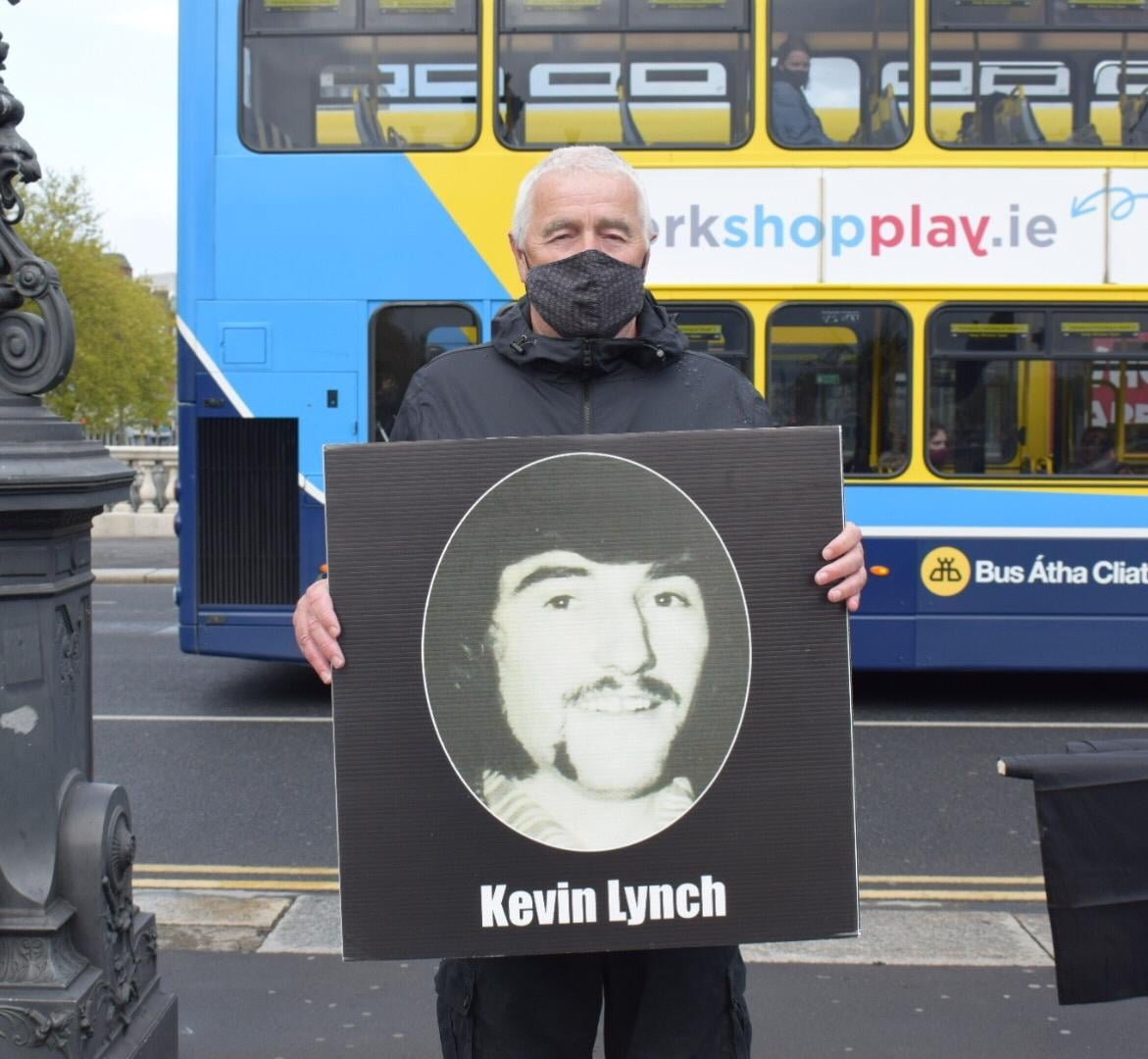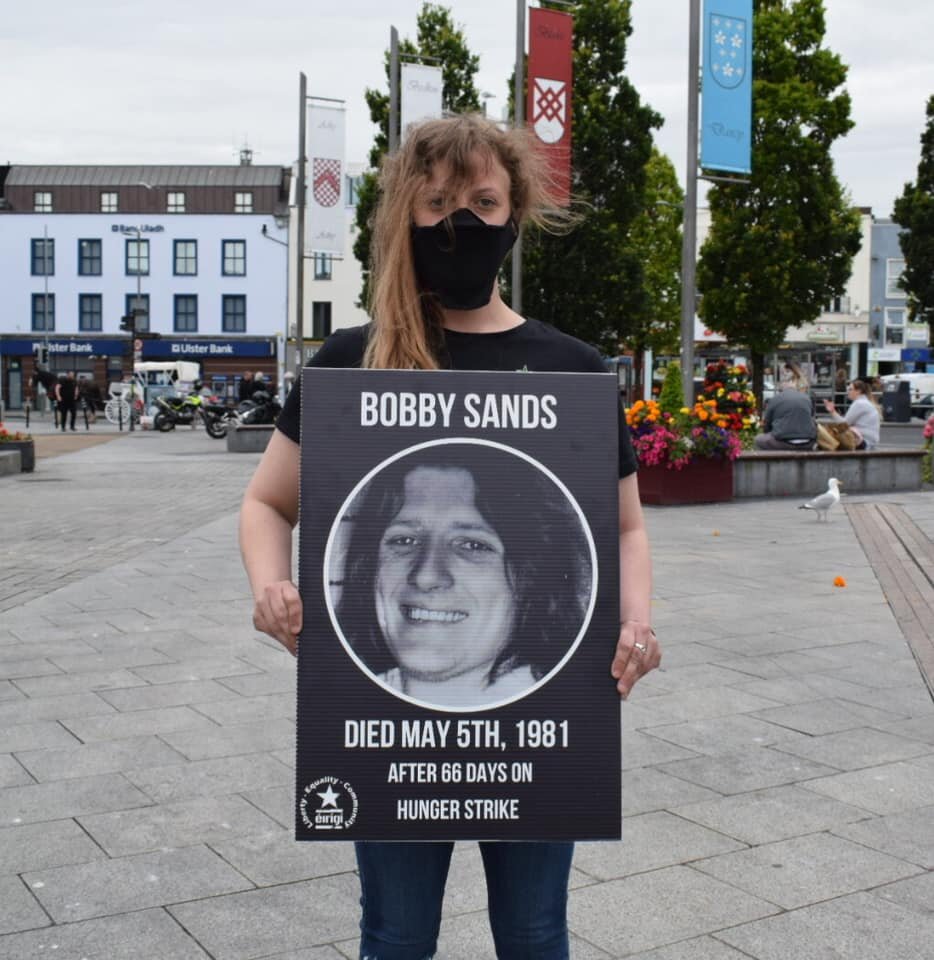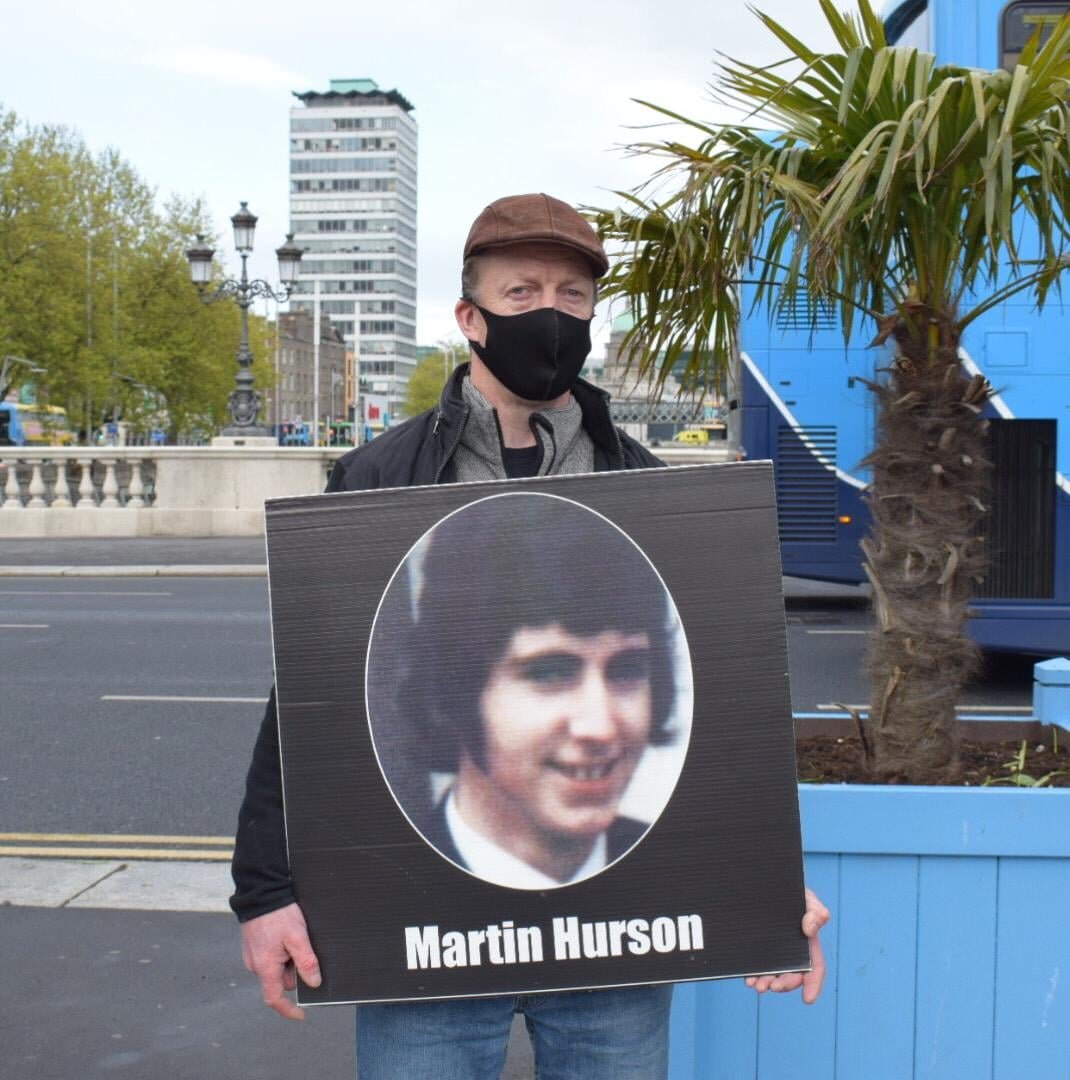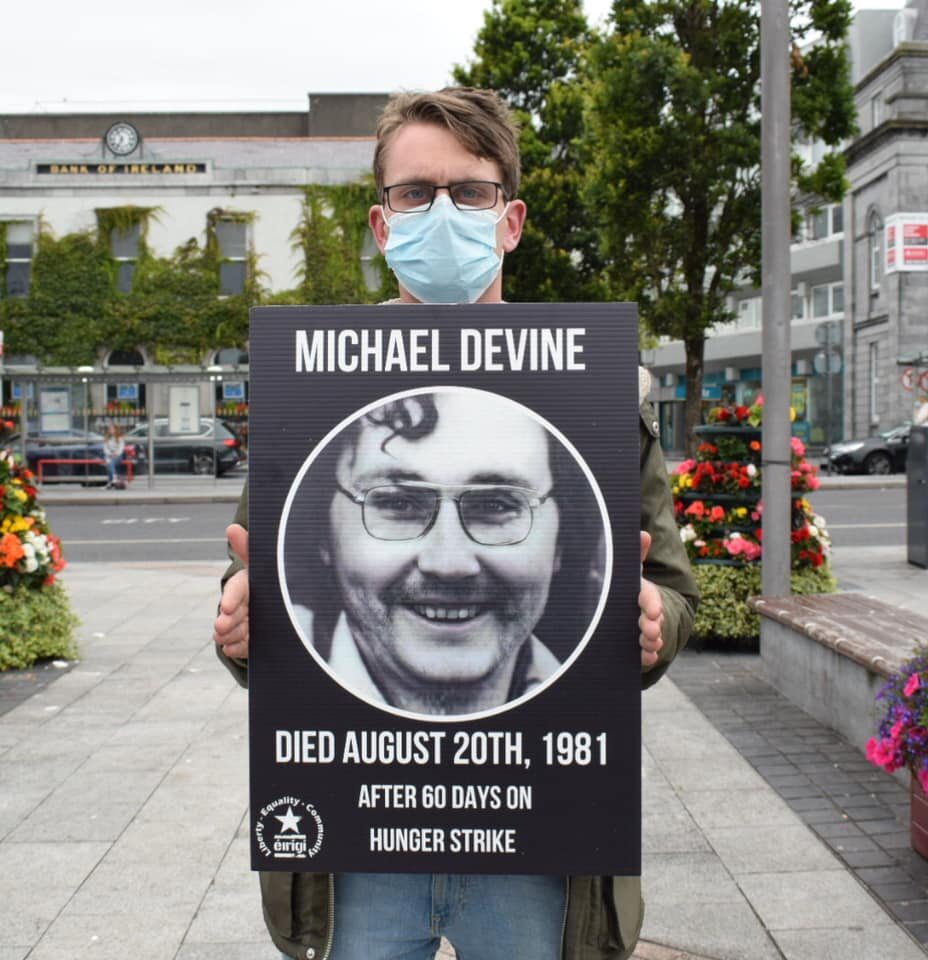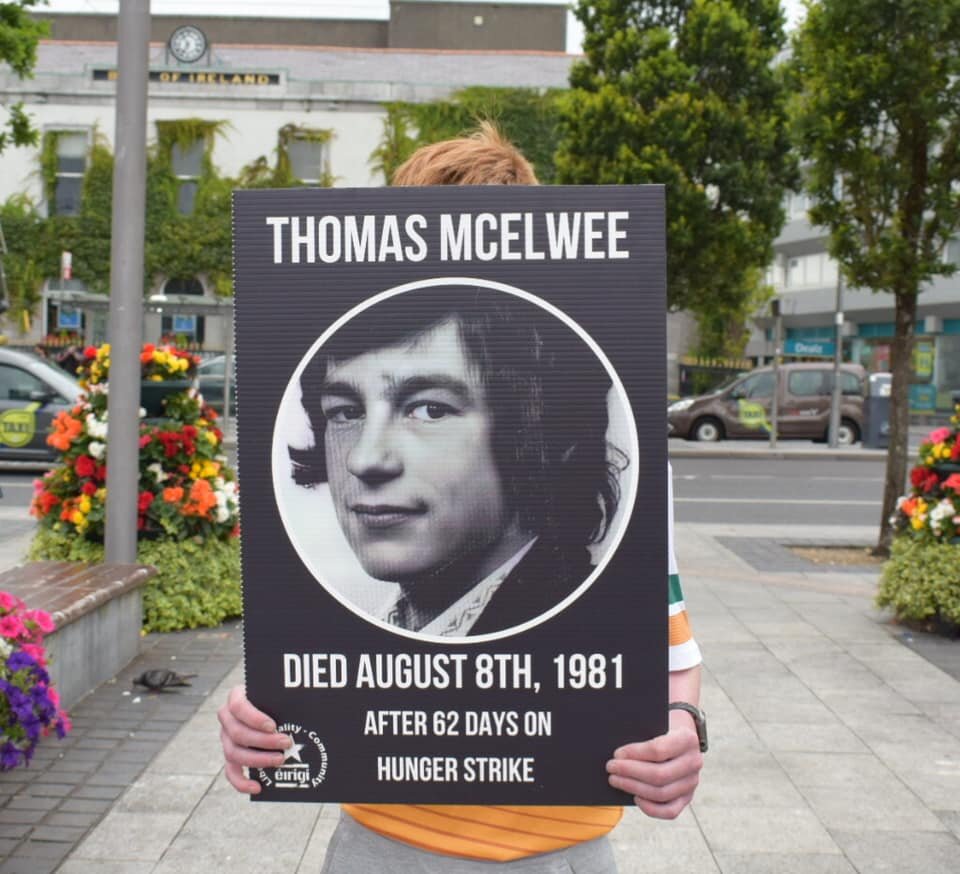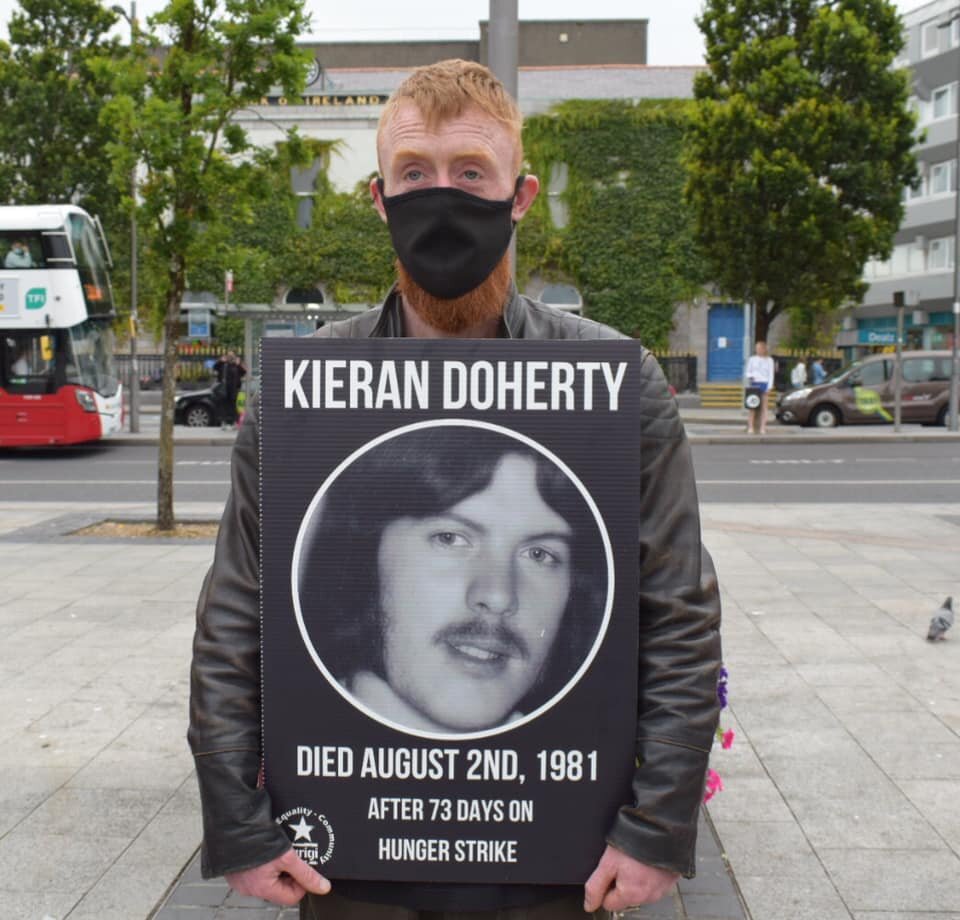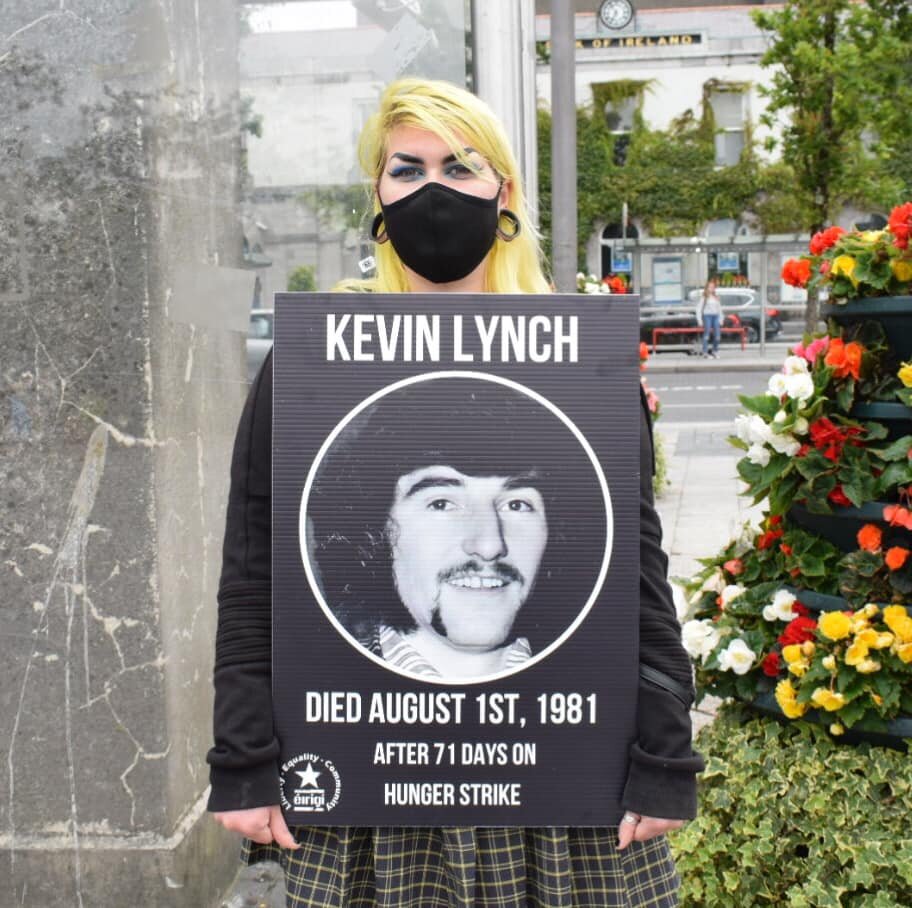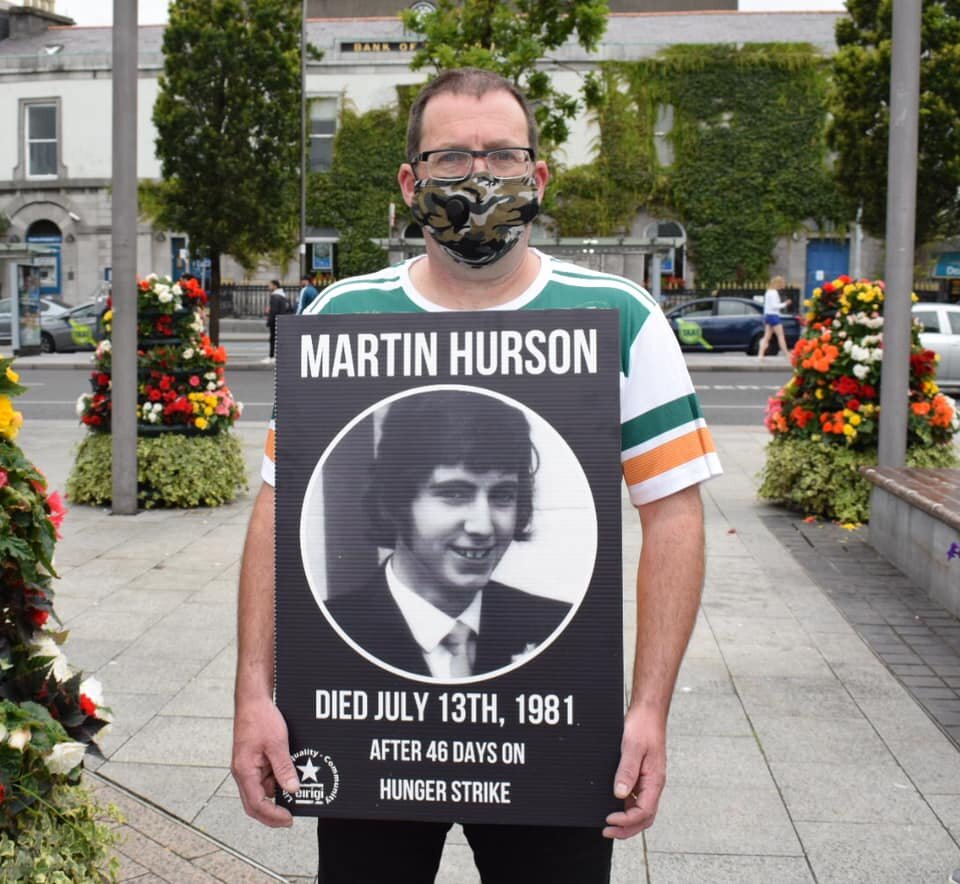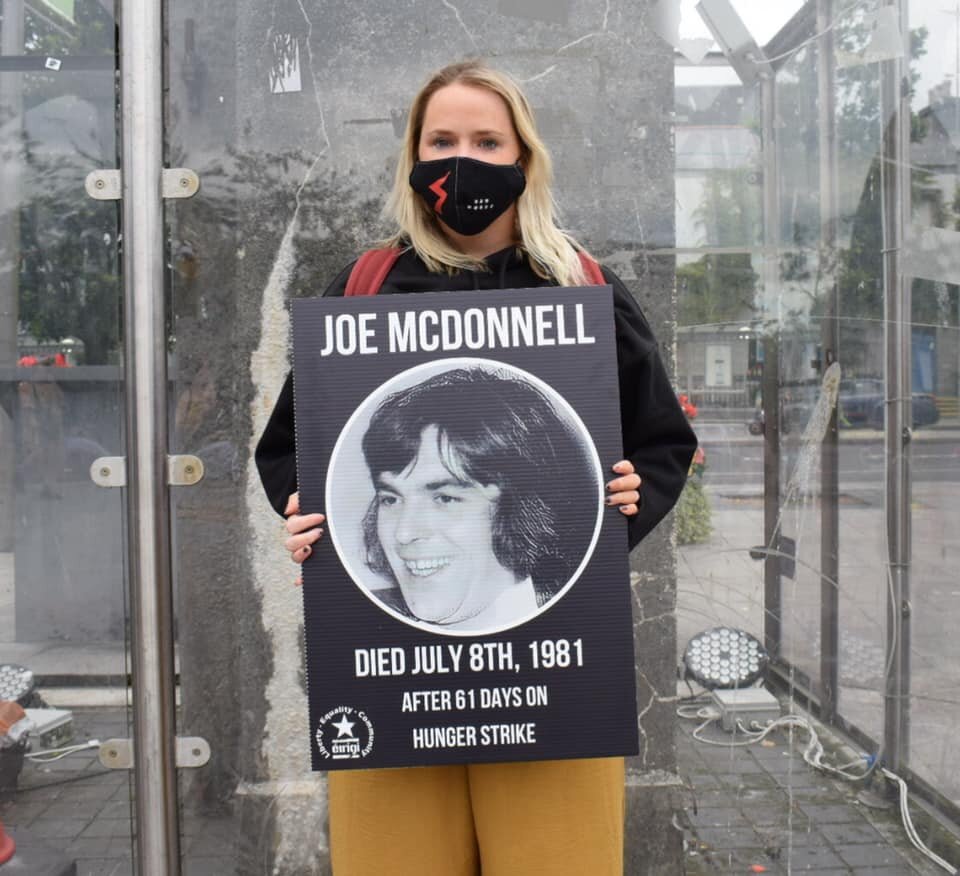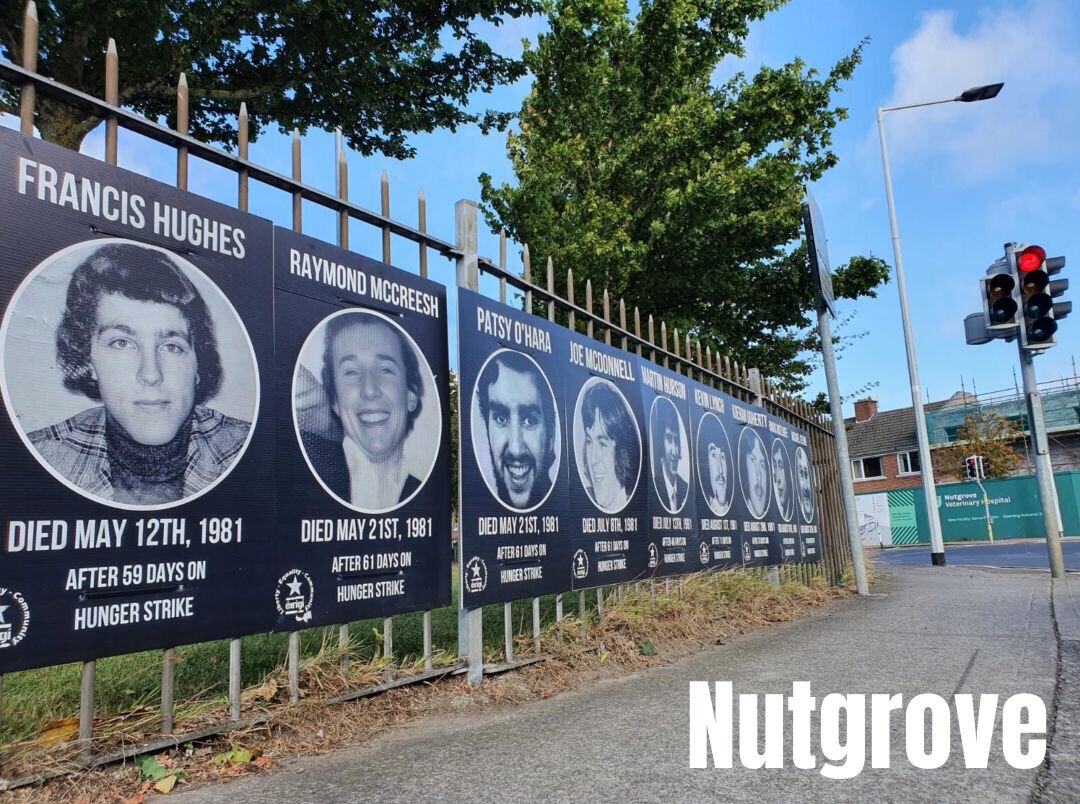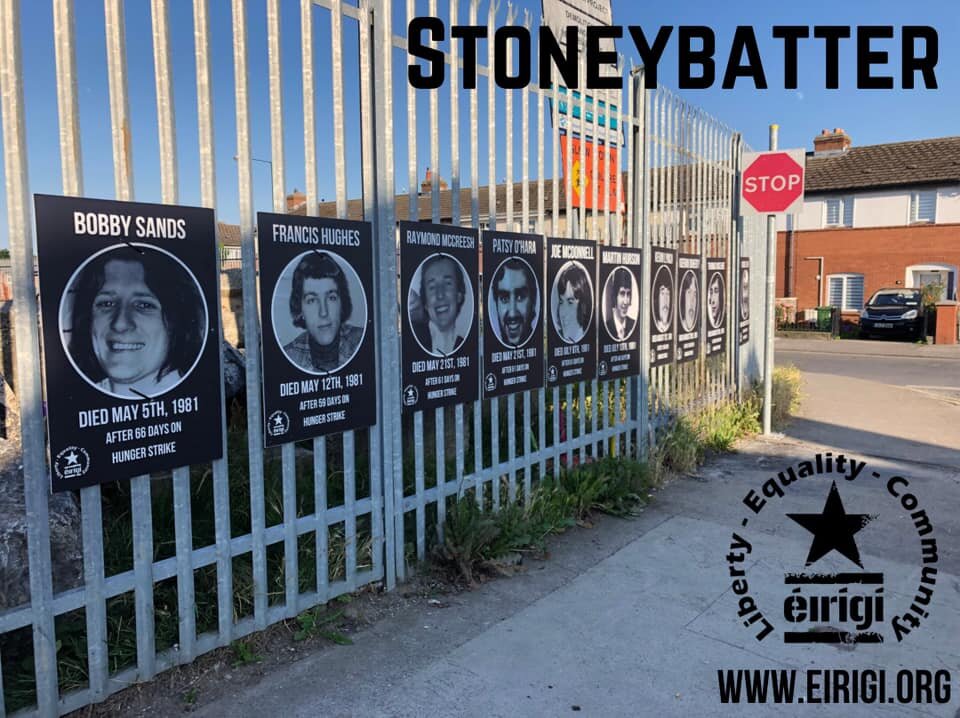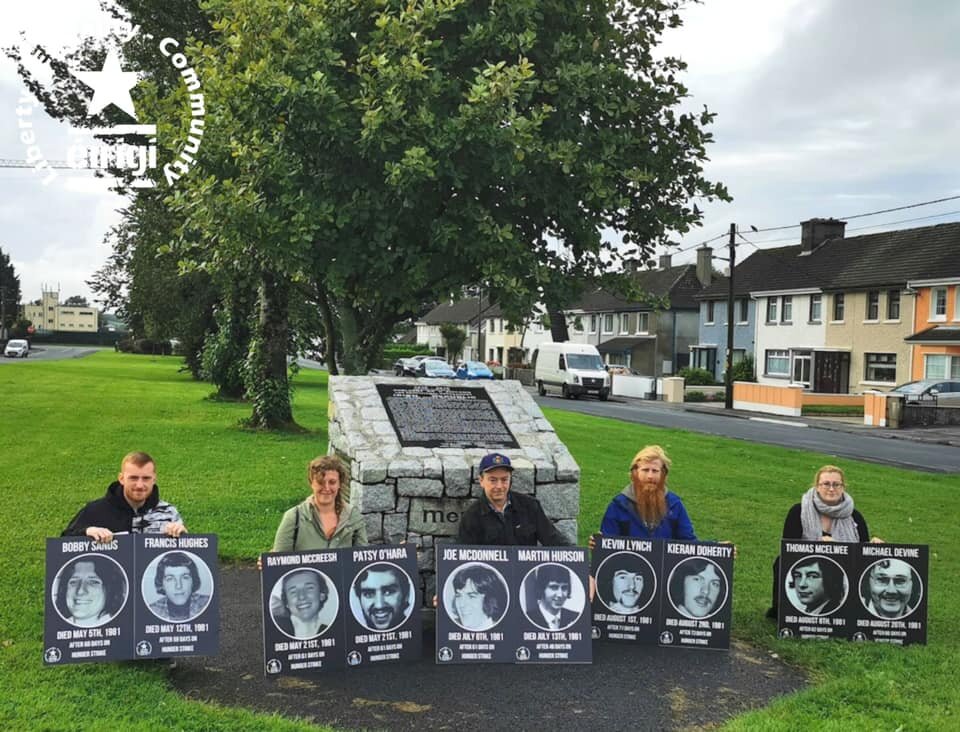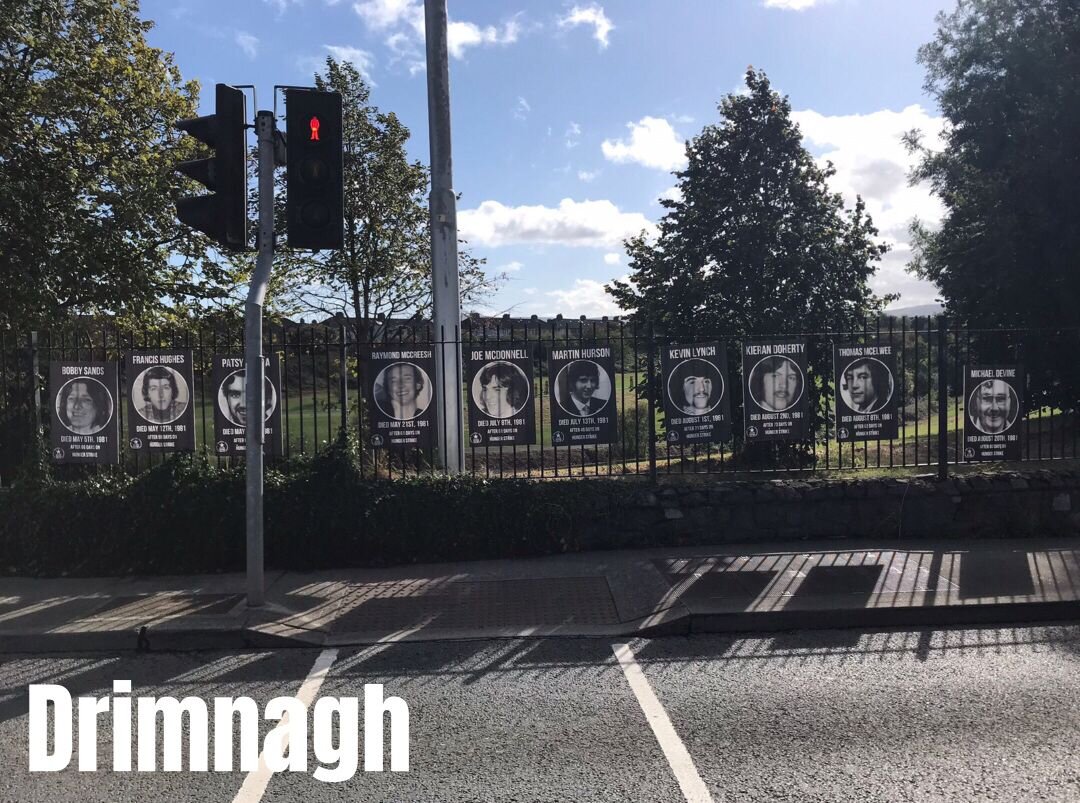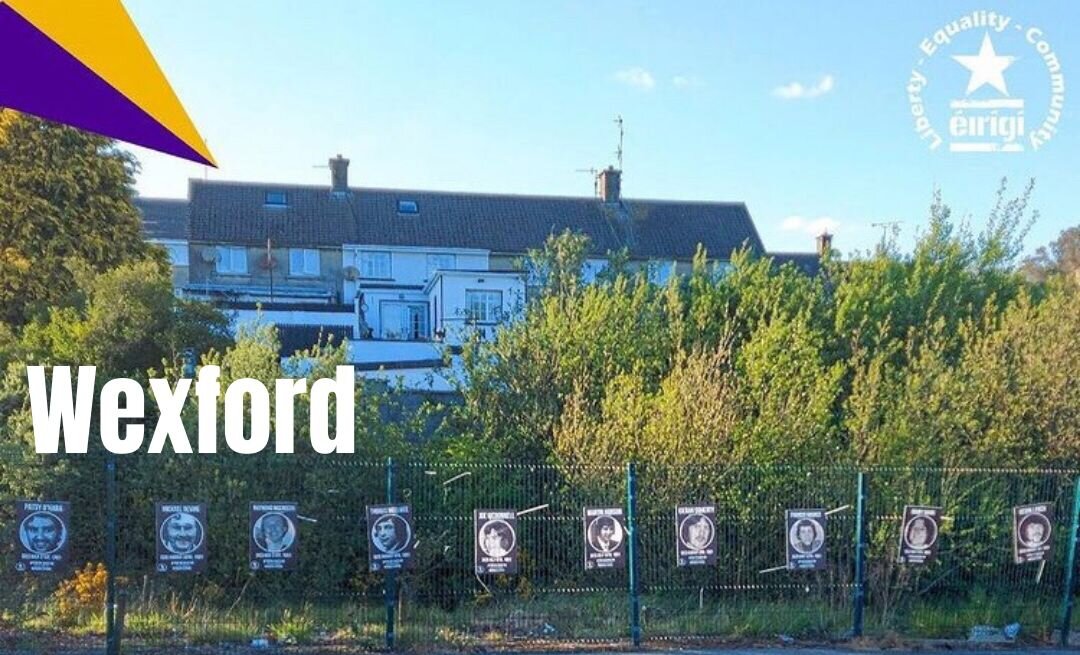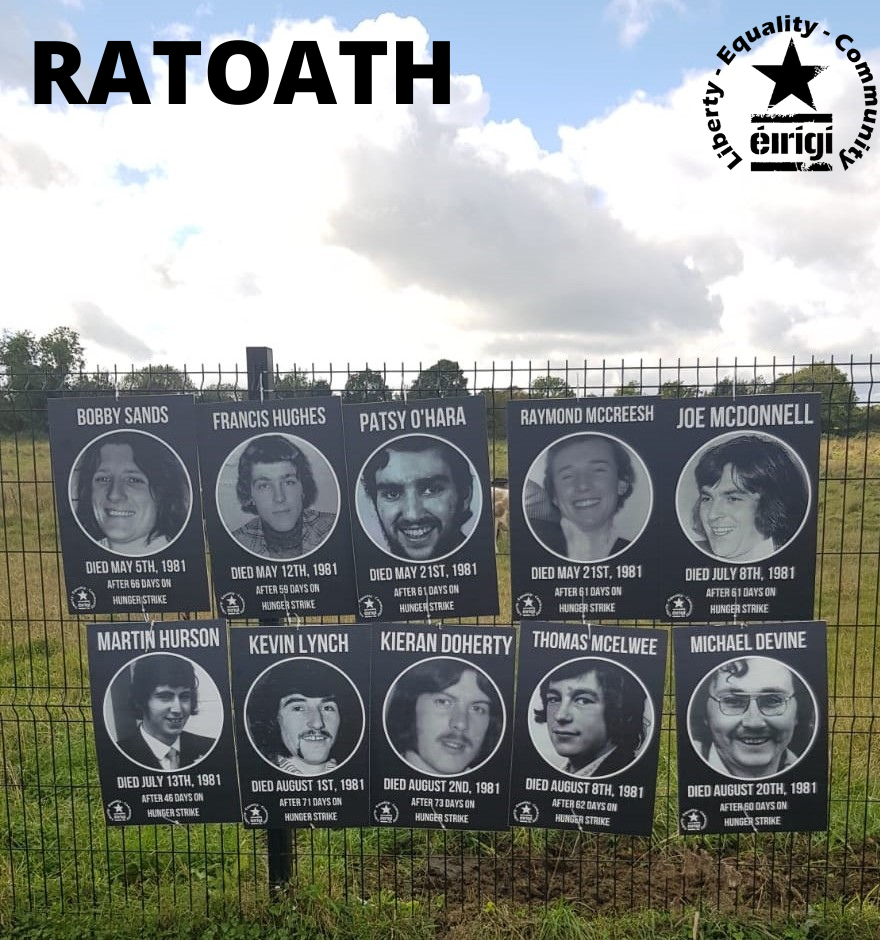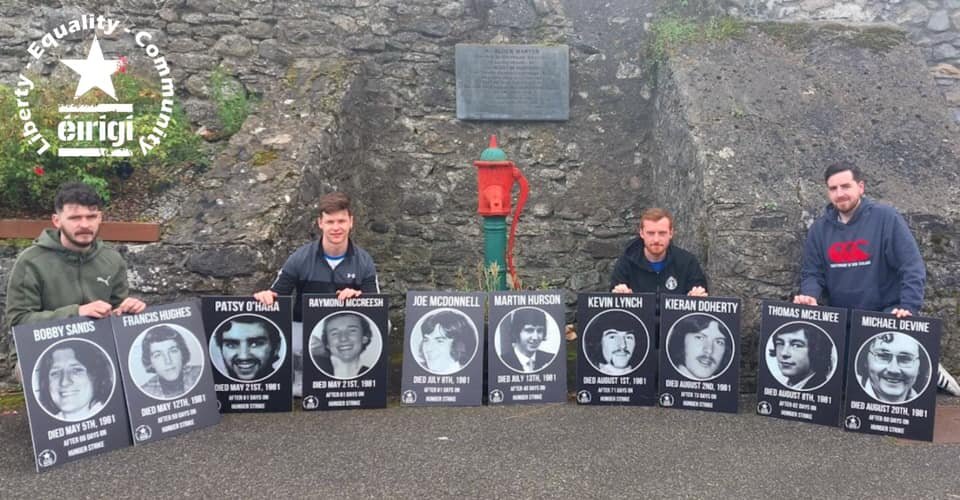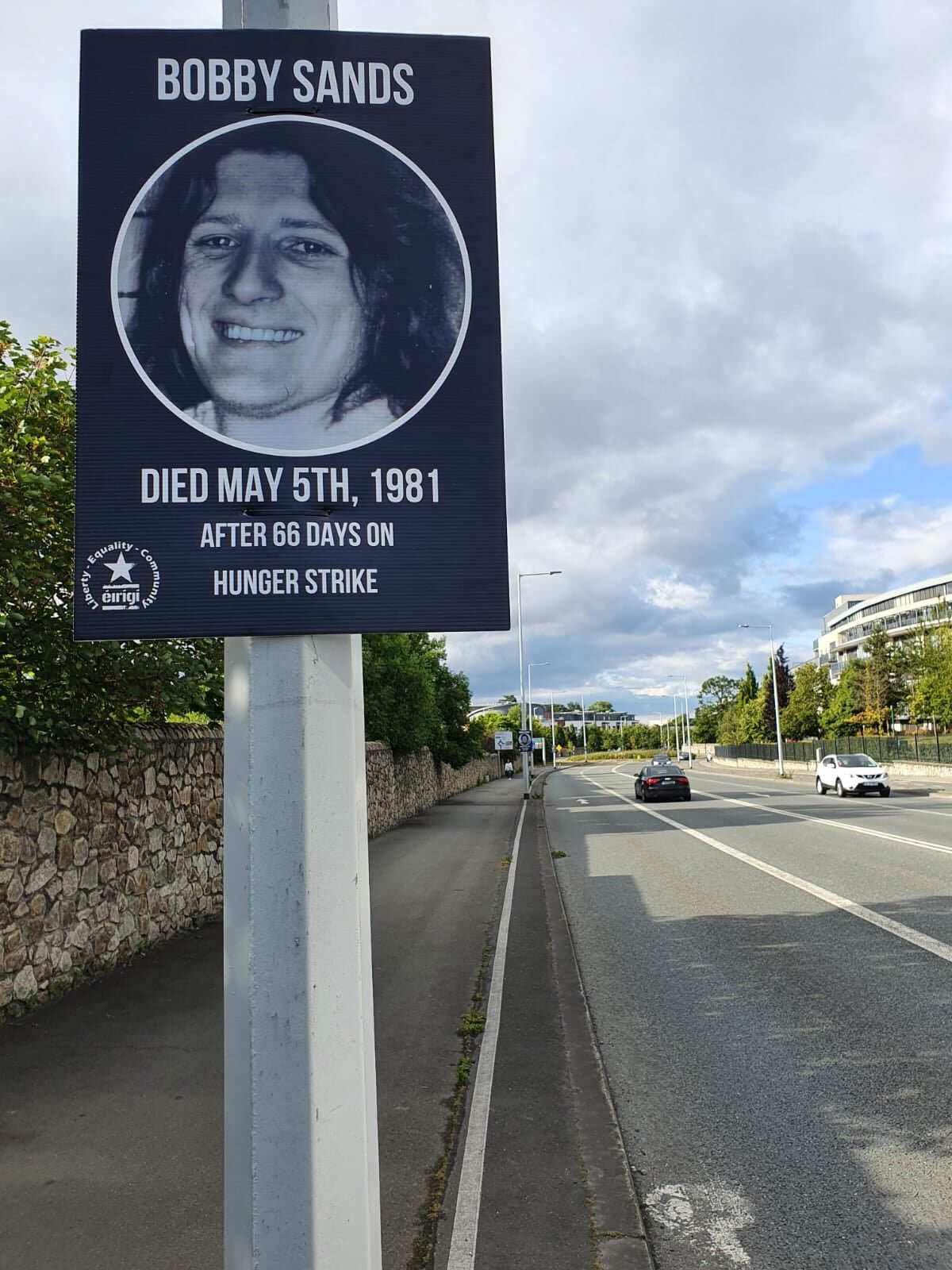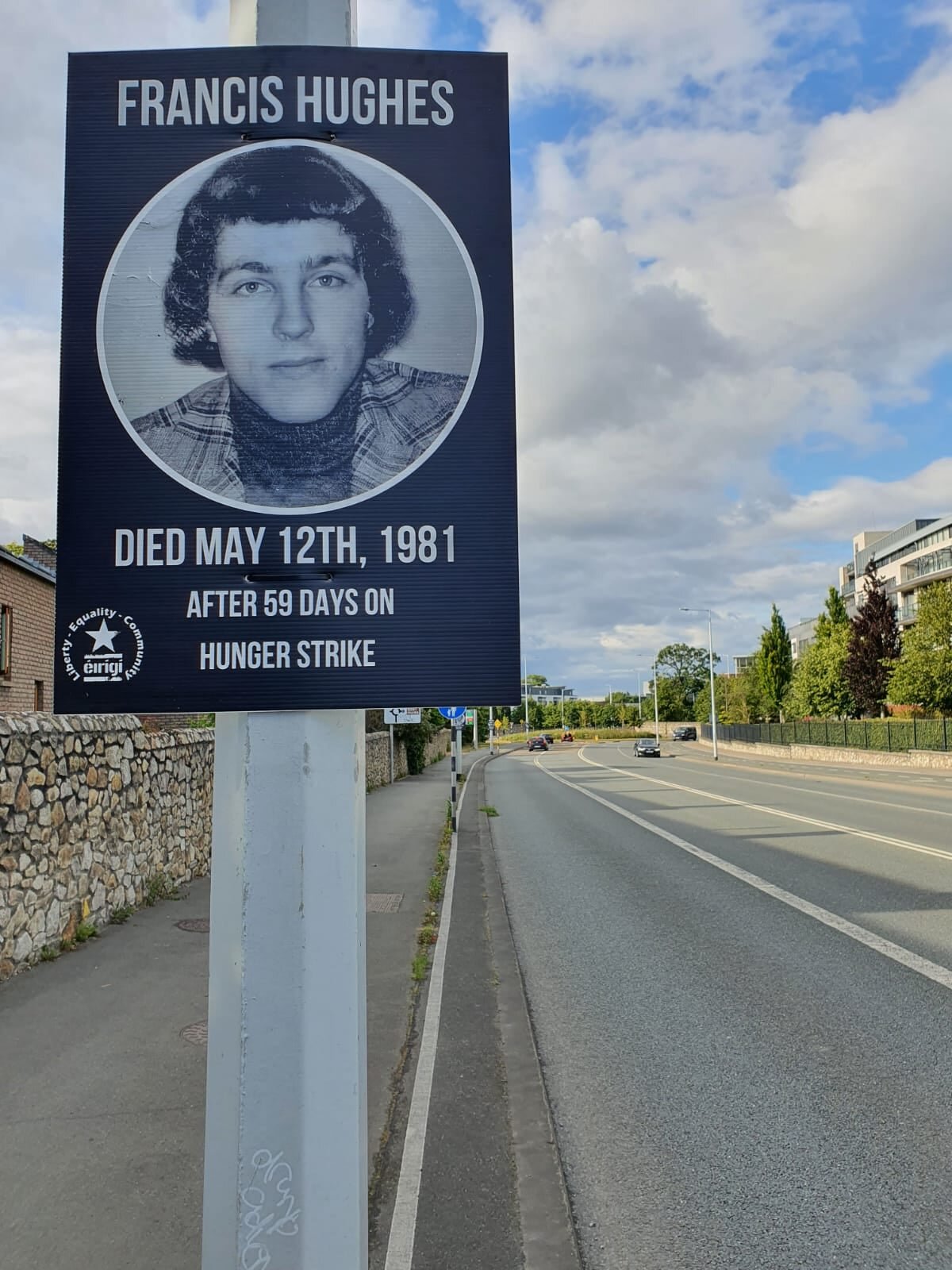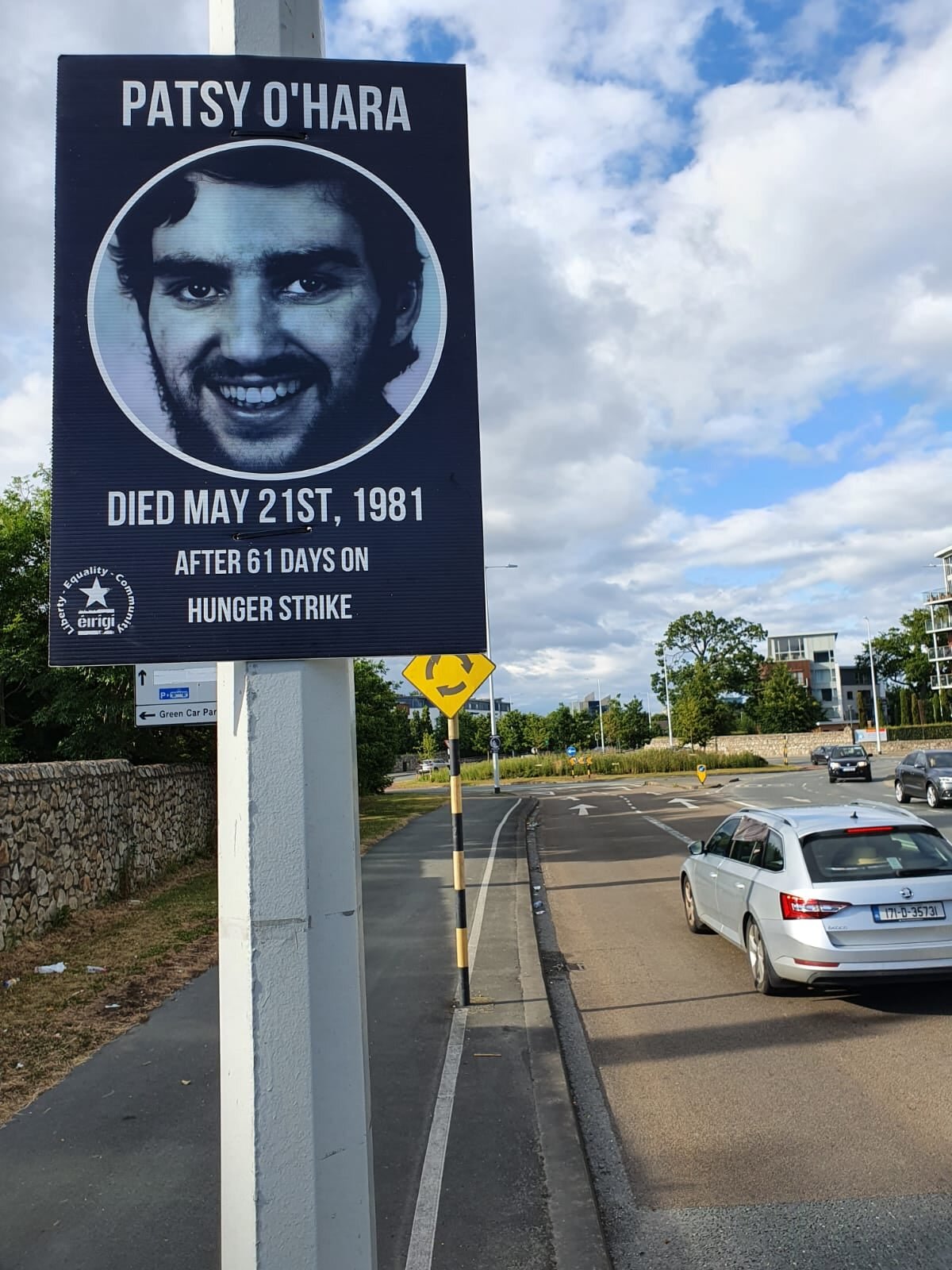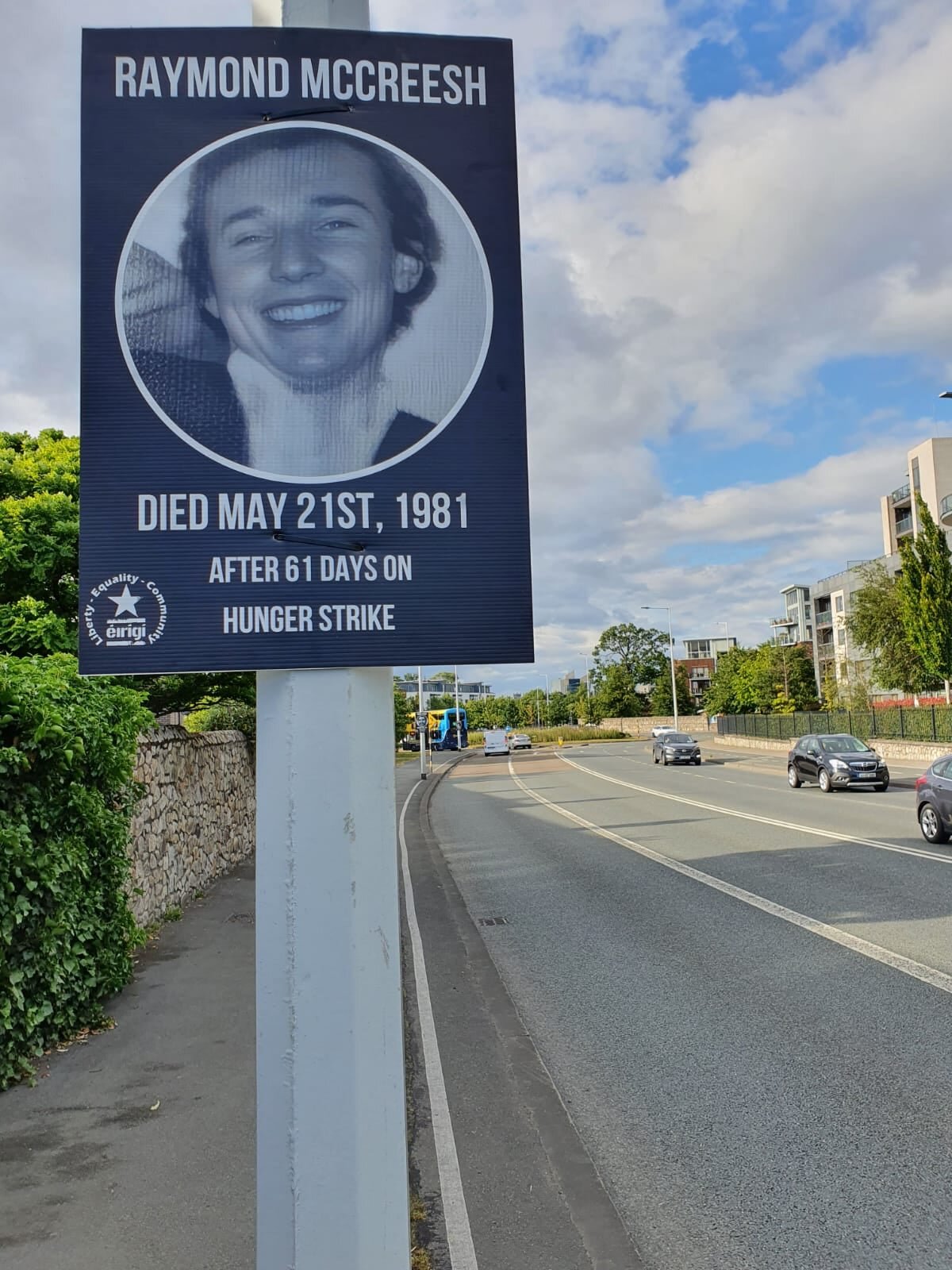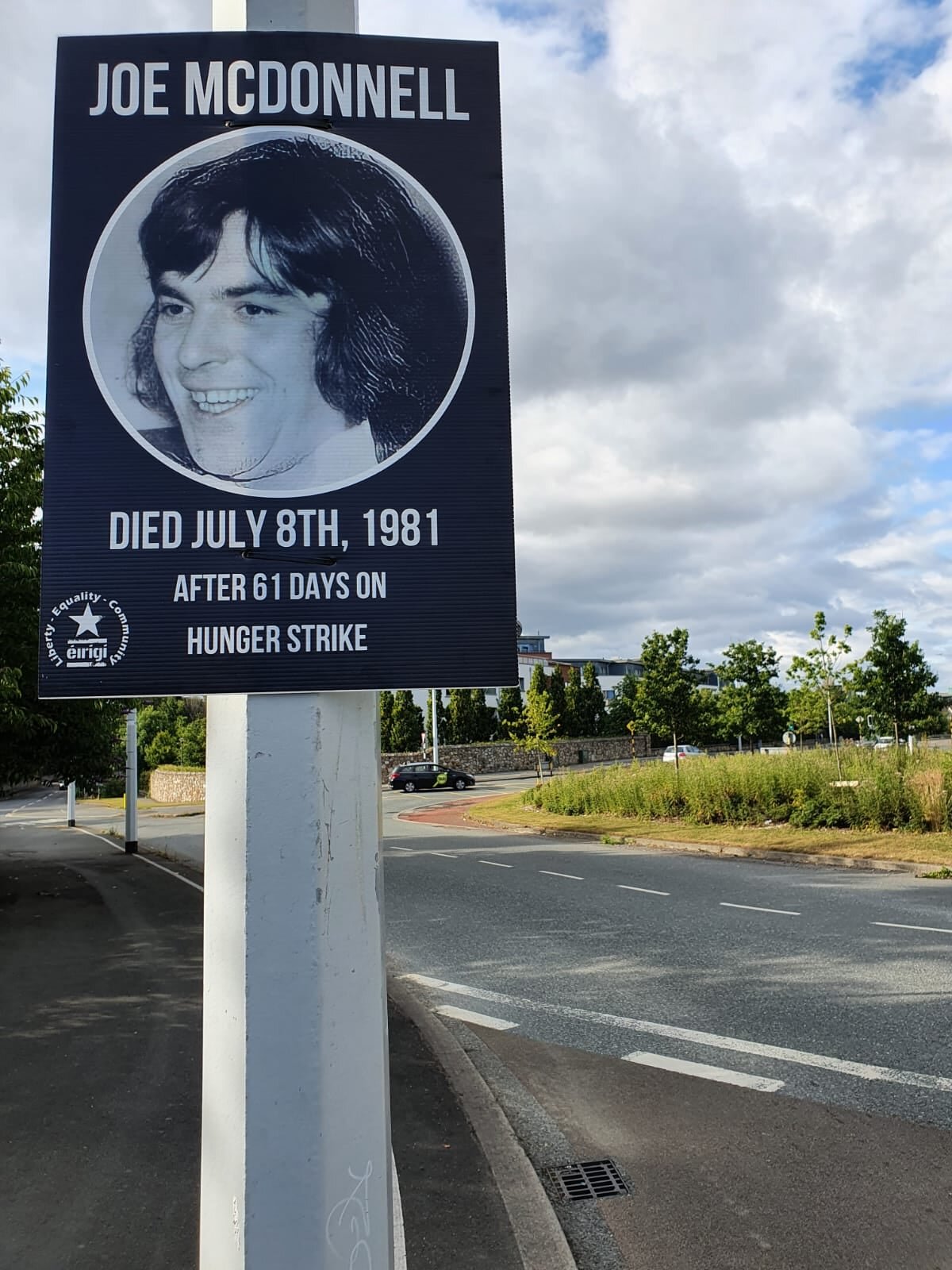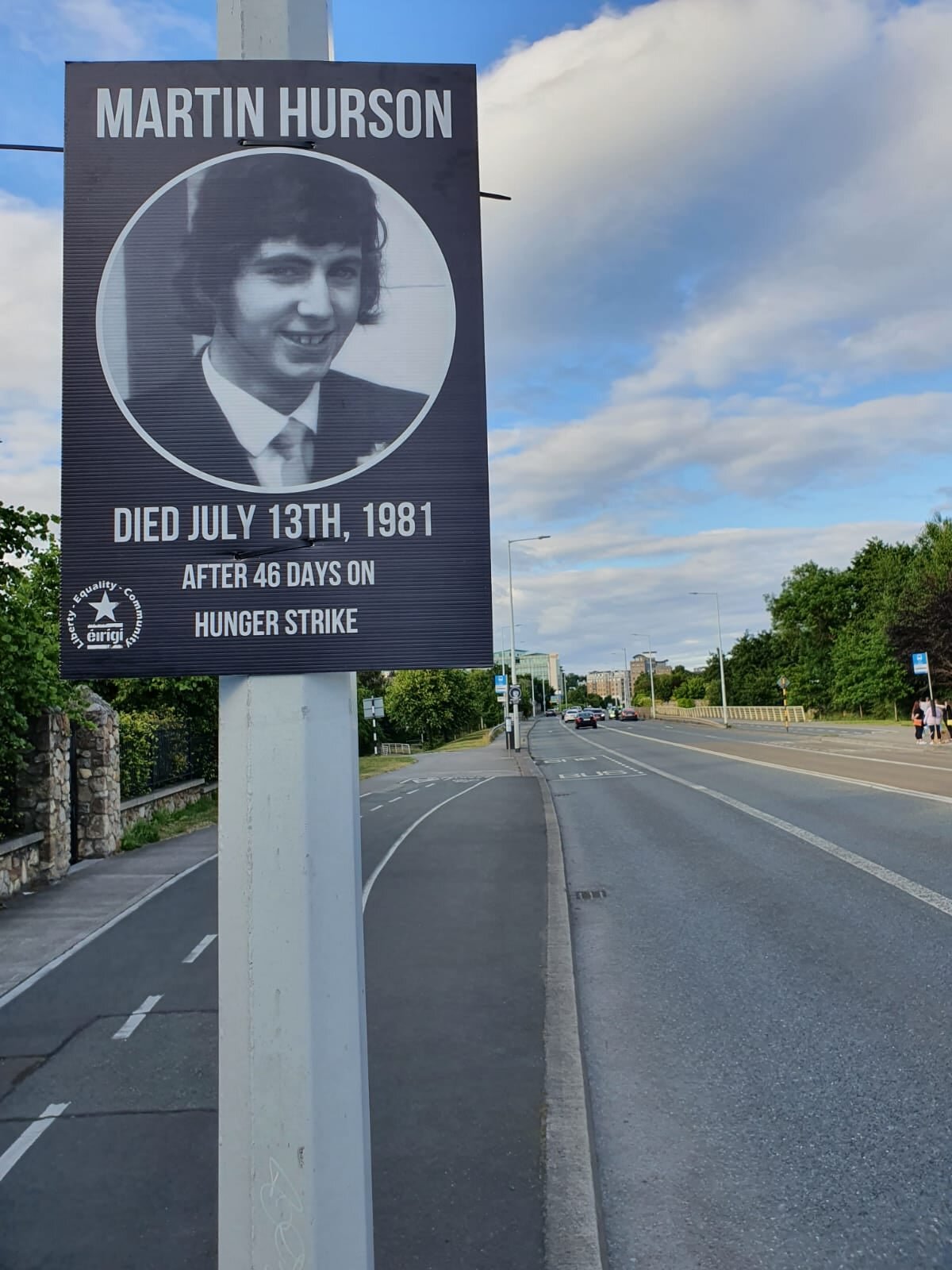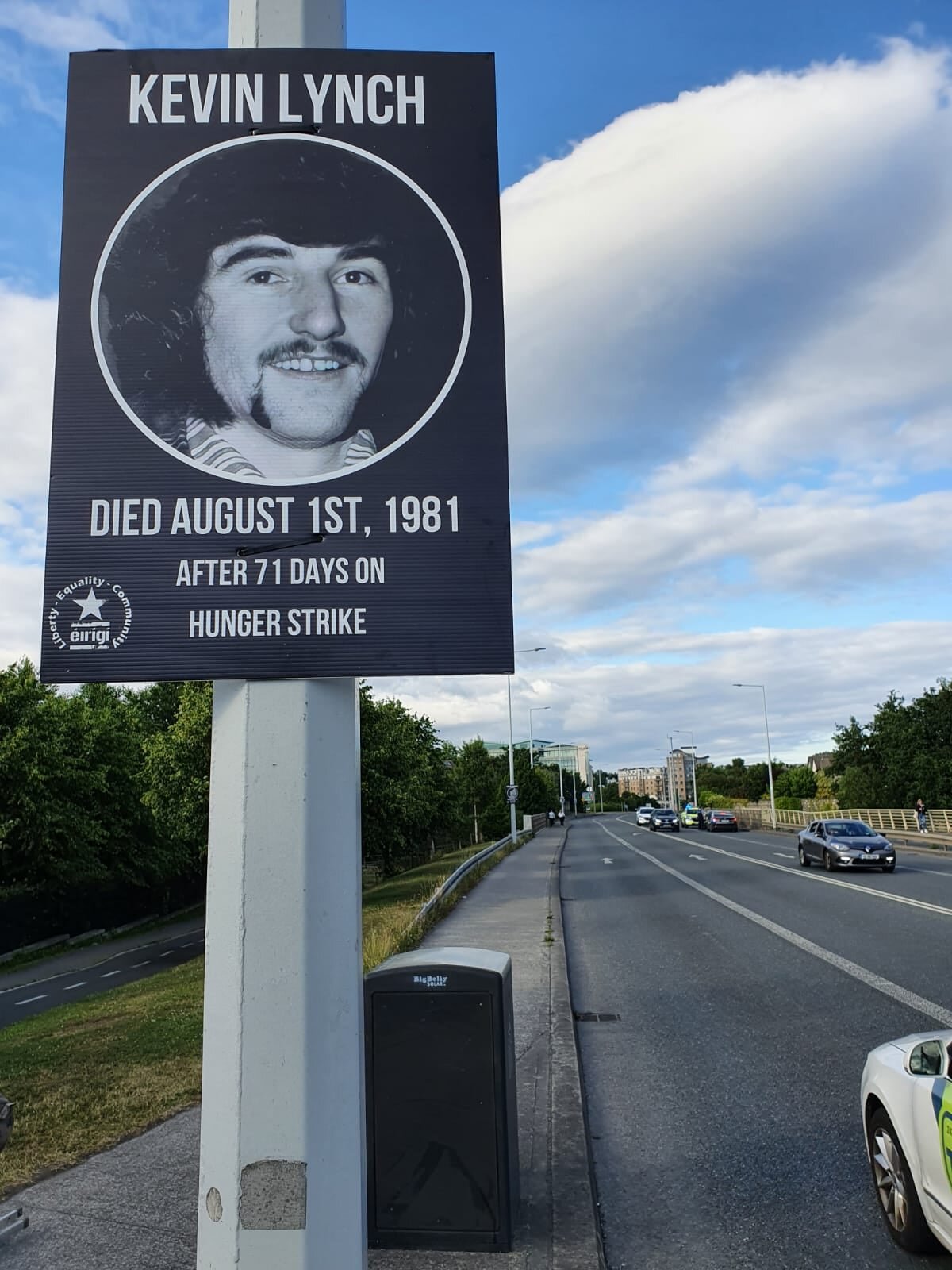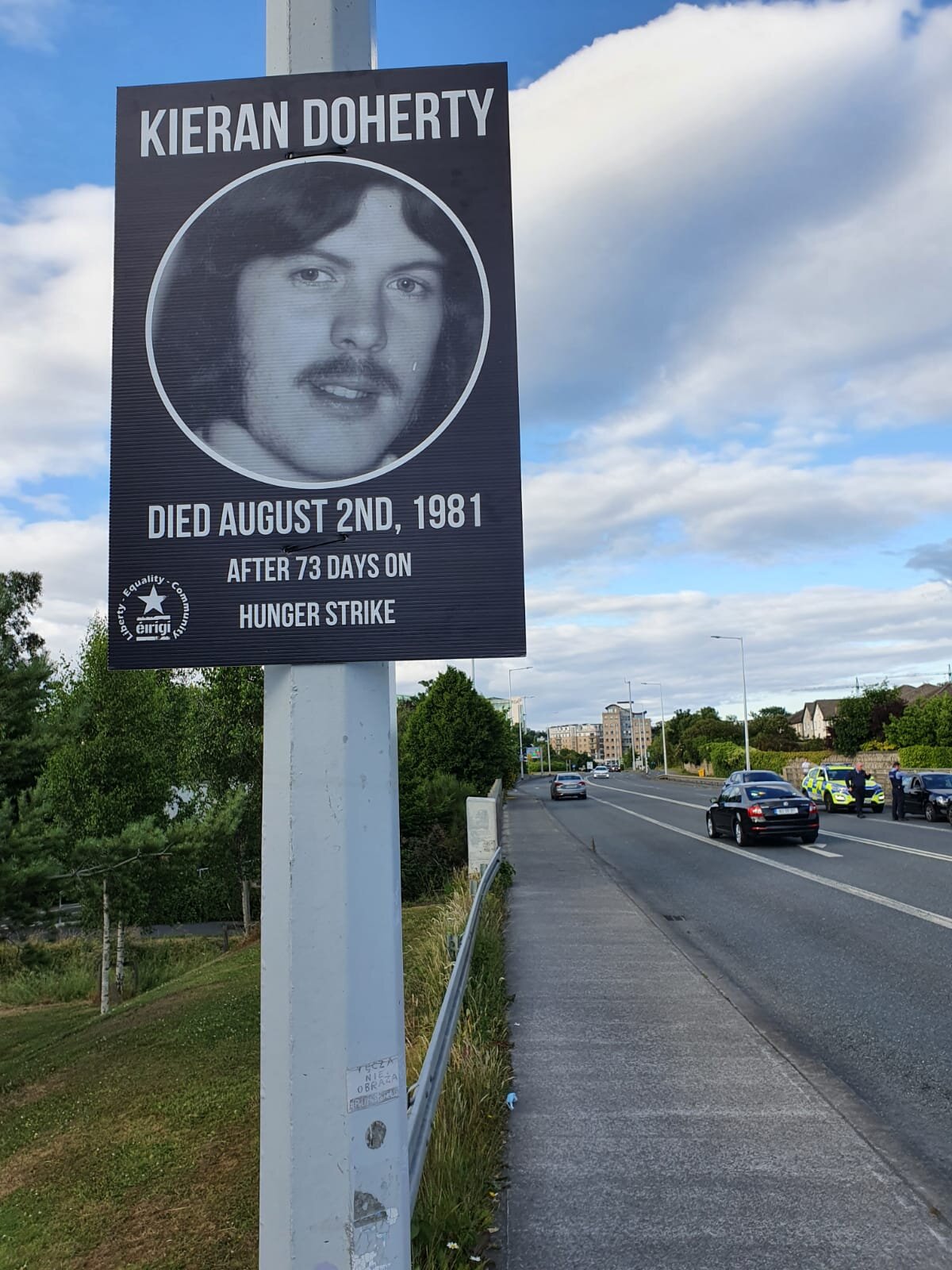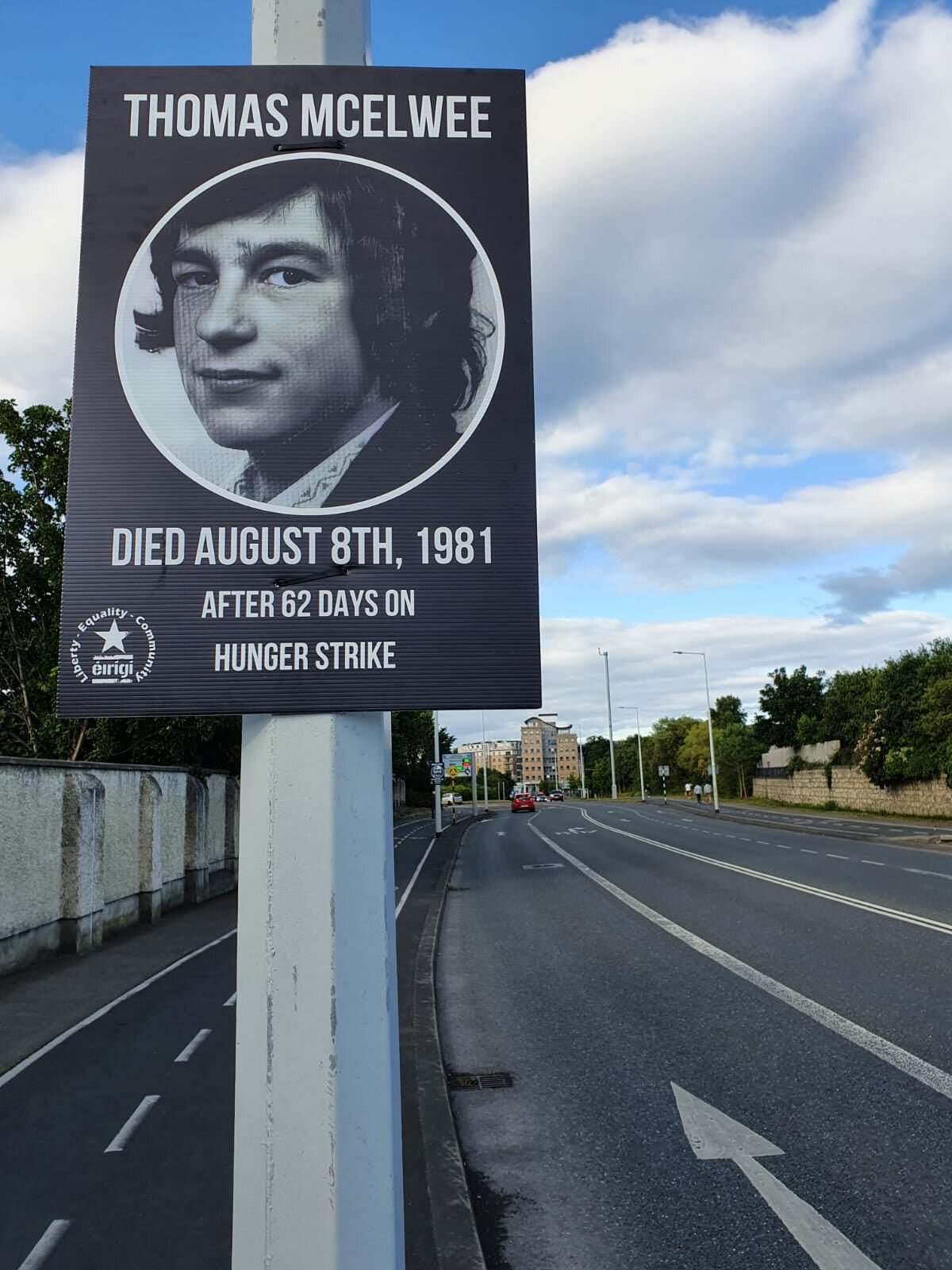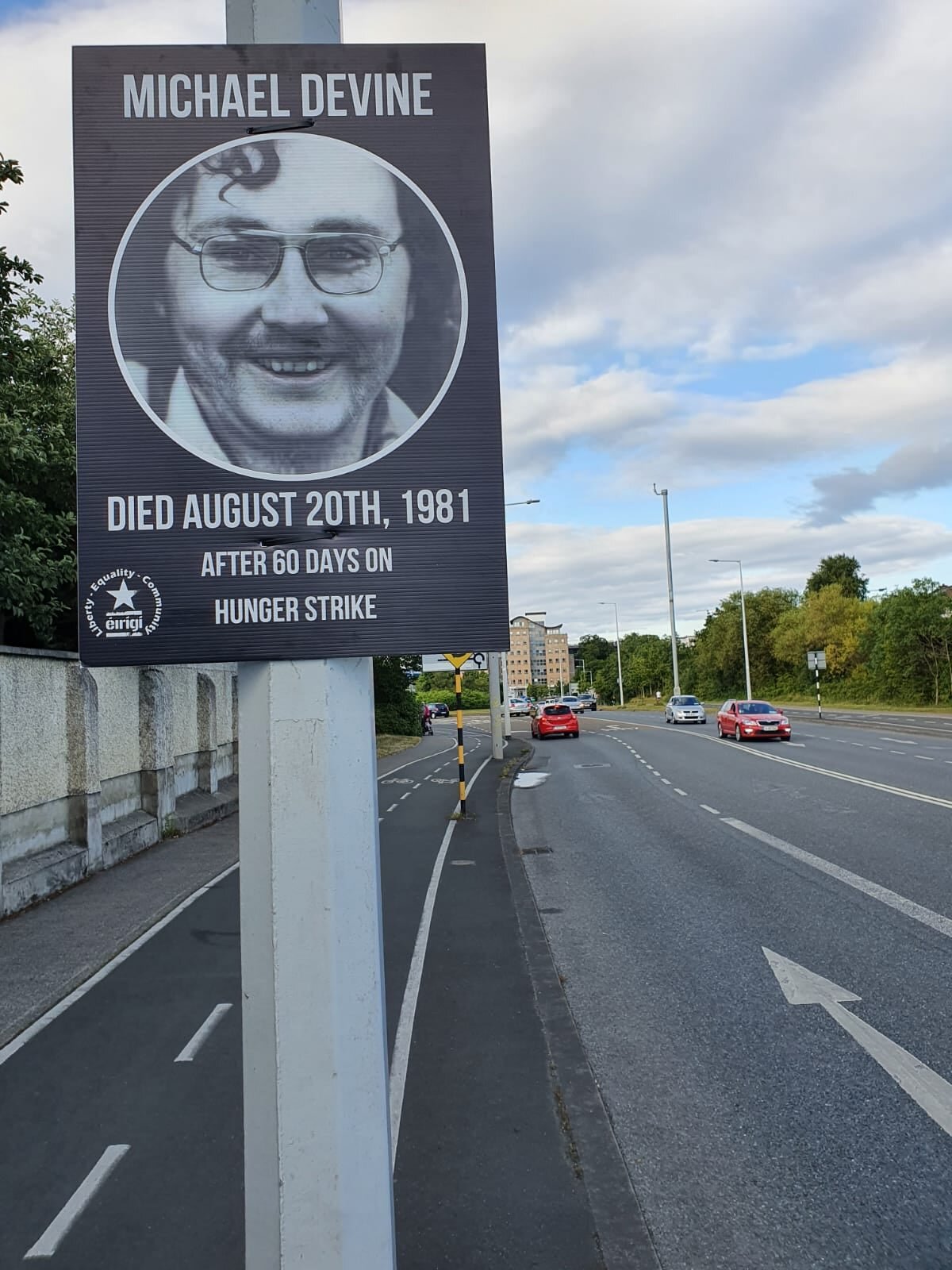The 1981 Hunger Strike Ended 40 Years Ago Today - Here's How Éirígí Remembered The Ten
On this day forty years ago, the 1981 hunger strike came to an effective end after 217 days. The epic protest was the culmination of a five-year-long battle for the restoration of political status, which the British government had unilaterally ended in 1976.
Despite the Covid-19 pandemic, Éirígí organised a safe black flag vigil on O’Connell Bridge in Dublin on May 5th, 2021 to mark the 40th anniversary of the death of Bobby Sands. Similar vigils have been organised at the same location on every May 5th since 2009.
In the five years that followed the abolition of political status, hundreds of male and female republican prisoners, in the H-Blocks and Armagh Jail, joined the ‘blanket protest’ and later the ‘no wash protest’. After years of living in the most horrific of conditions, the prisoners began a mass hunger strike in October 1980. It ended 53 days later in confusion and failure, setting the backdrop for the tumultuous events that were to follow during the summer of 1981.
In the weeks that followed the collapse of the 1980 hunger strike, the republican prisoners concluded that a second hunger strike would be needed to defeat Margaret Thatcher’s attempts to crimalise the republican struggle. The second hunger strike began when a lone prisoner, Bobby Sands, refused food on the March 1st, 1981. On April 9th, Sands won a stunning victory when he was elected to Westminister as the MP for the Fermanagh / South Tyrone constituency. Less than a month later, on May 5th, Sands died after 66 days without food.
As over 100,000 people attended Sands funeral in Belfast, his comrades in the H-Blocks did not flinch in their resolve. The hunger strike was to continue. By now several other IRA and INLA volunteers were reaching critical points in their protest. One week after Sands died, the legendary guerilla fighter Francis Hughes slipped from this life He was just twenty-five years of age.
Dozens of citizens came together to remember Martin Hurson in Eyre Square, Galway on the 40th anniversary of his death on July 13th, 2021
Over the weeks and months that followed another eight young Irish republicans died from starvation in a protest which was watched and supported by countless millions of people across the globe. In death they they asserted the political nature of the republican struggle in a manner that Thatcher and her regime could never counter or defeat.
For as long as Ireland has daughters and sons, the names of The Ten will be hallowed - Bobby Sands, Francis Hughes, Raymond McCreesh, Patsy O’Hara, Joe McDonnell, Martin Hurson, Kevin Lynch, Kieran Doherty, Thomas McElwee and Mickey Devine.
Limerick remembered the sacrifice of The Ten at a monument dedicated to the republican dead of the 1916 Rising. Two generations of republican martyrs, separated by 65 years, but united in their shared commitment to the cause of Ireland and her people.
The 1981 hunger strike is one of the most important events of modern Irish history - an event which inspires Irish republicans to this day. Despite the challenges presented by the Covid-19 pandemic, Éirígí ensured that the 40th anniversary of the hunger strike was marked in a dignified manner communities across the country.
With stickers, posters and black flag vigils Éirígí members and supporters paid fitting tribute to the ten young volunteers who gave their lives so that we all might live in a free, independent Irish Republic. We take this opportunity to thank you all for the role that you played in keeping the memory of The Ten alive in your communities.
The Society of United Irishmen was founded 230 years ago this month. Their ideals of Liberty, Equality, Community, Democracy and Justice inspired the women and men who joined the rebellions of 1798 and 1803. Half a century later, in the 1840s, those ideals gave birth to the Young Irelanders who struck back against the then genocide that was being waged against our people.
Again and again, that same republican vision inspired generations of Irish cititizens to organise for freedom - in 1867, in 1916 and 1919. And yes, it was those same timeless principles that lit the dark prison cells of the H-Blocks in 1981.
Joe McDonnell, the fifth hunger striker to die was remembered in Dundrum on July 8th, 2021, the 40th anniversary of his passing. The 1981 hunger strikers will continue to new generations of Irish republicans for centuries to come. They may have killed the revolutionaries, but they will never kill the Irish revolution.
Today Éirígí continues the work of building support for a new all-Ireland Republic. In campainging for national reunification and freedom - in fighting for public ownership of our natural resources - in battling for housing justice - in promoting the everyday use of the Irish language - in all of these things and many more we remember our dead and fight like hell for the living. If you’re ready to join the fight for the New Republic, please get in touch today.



